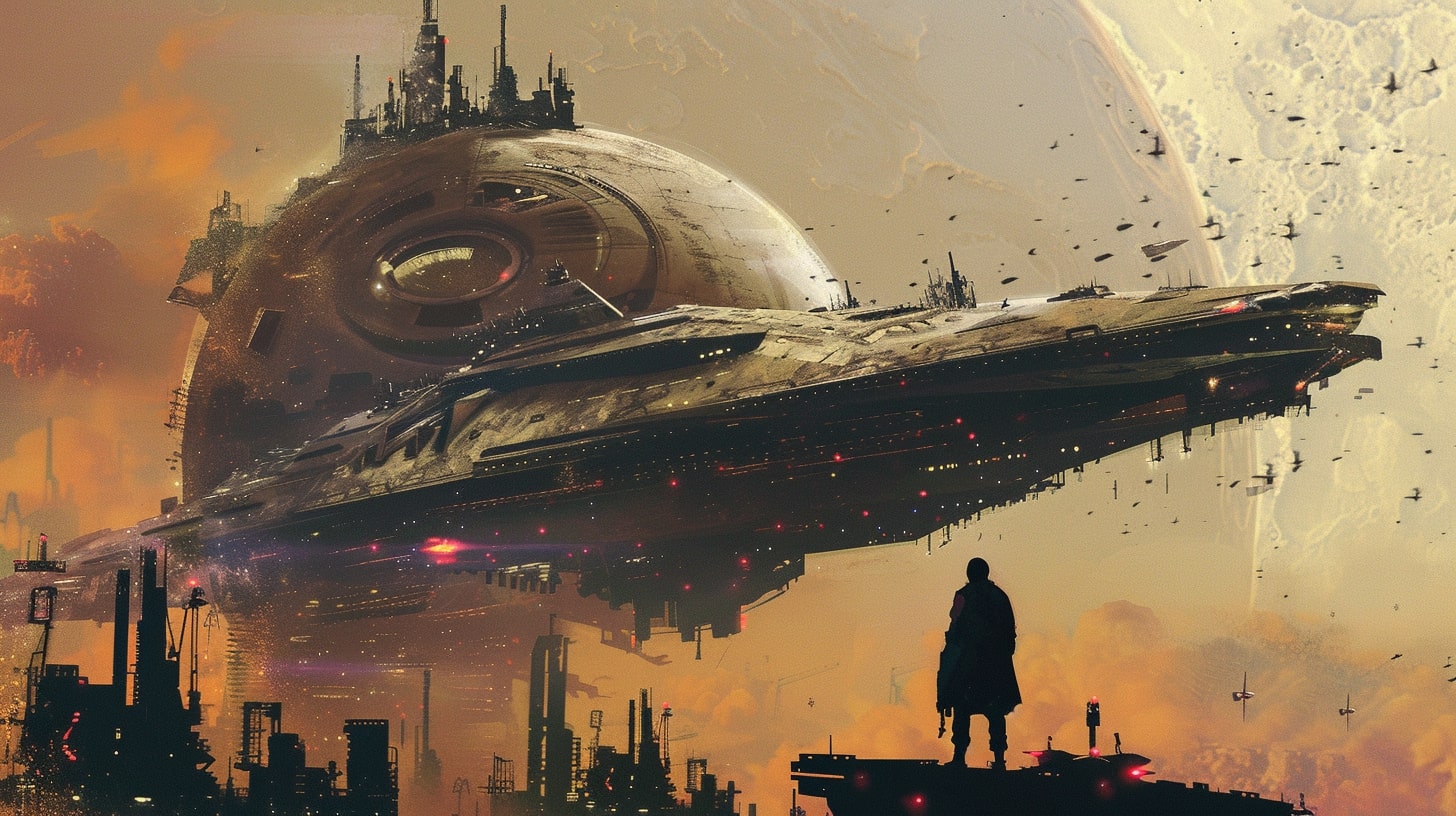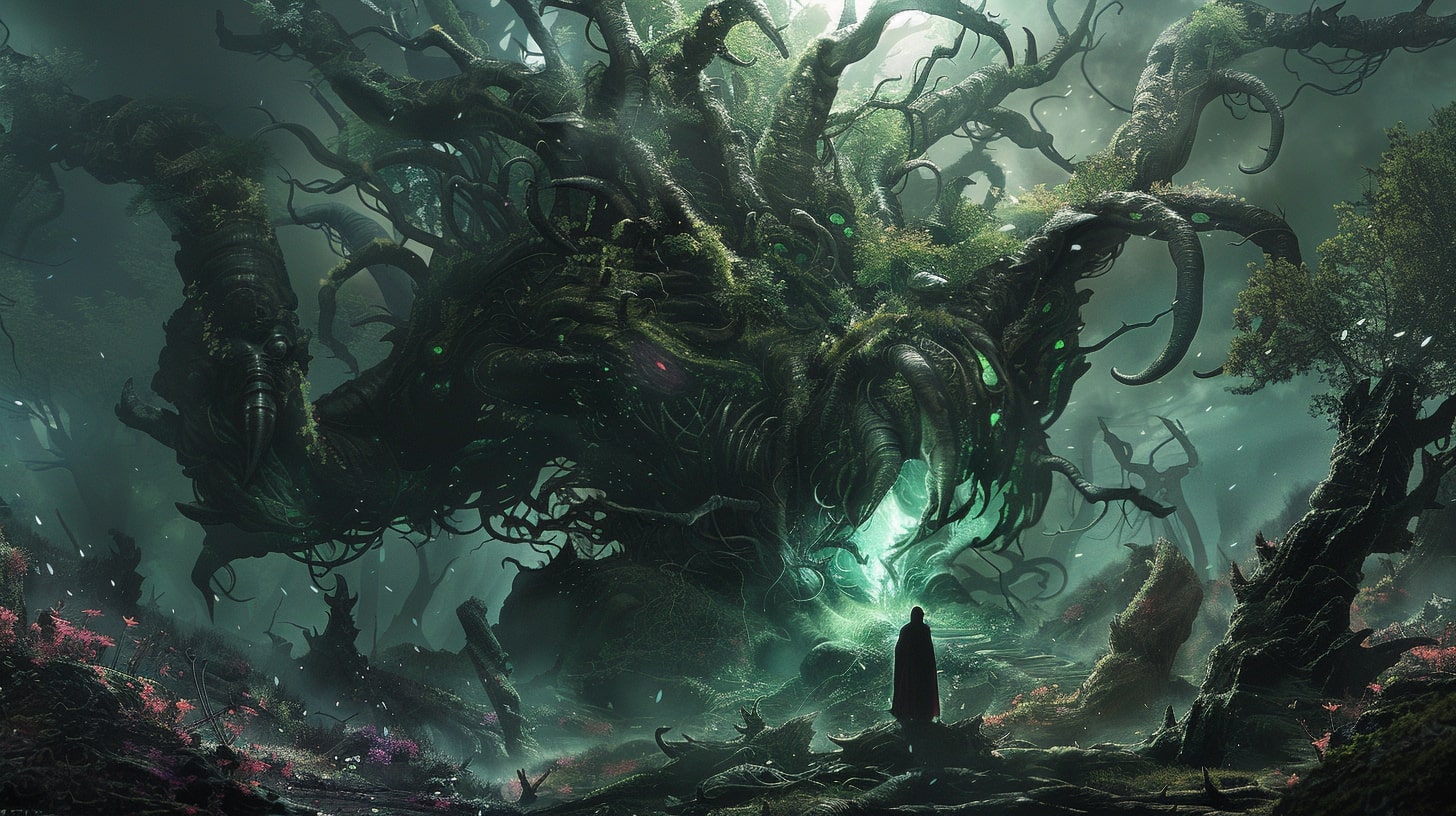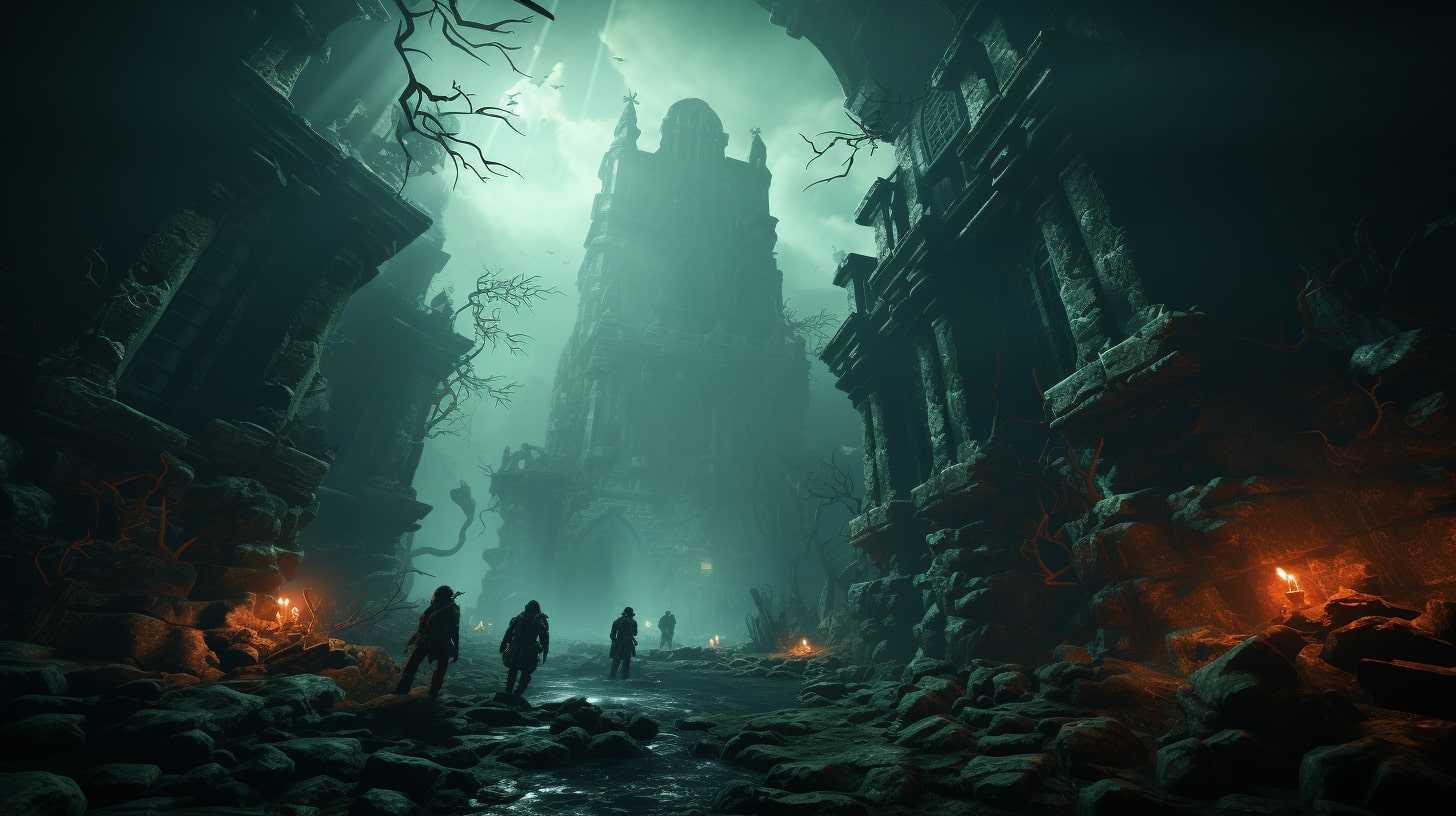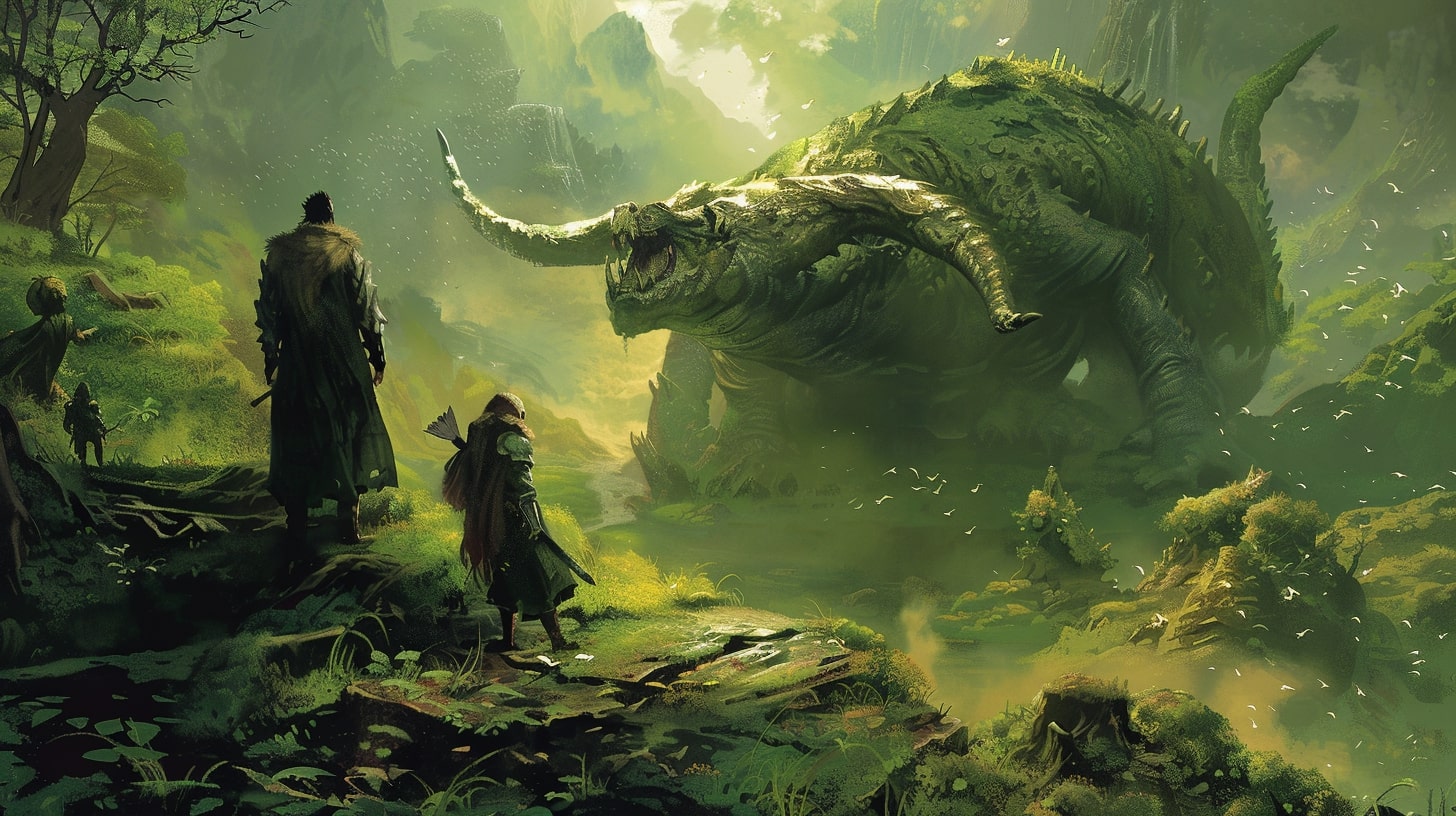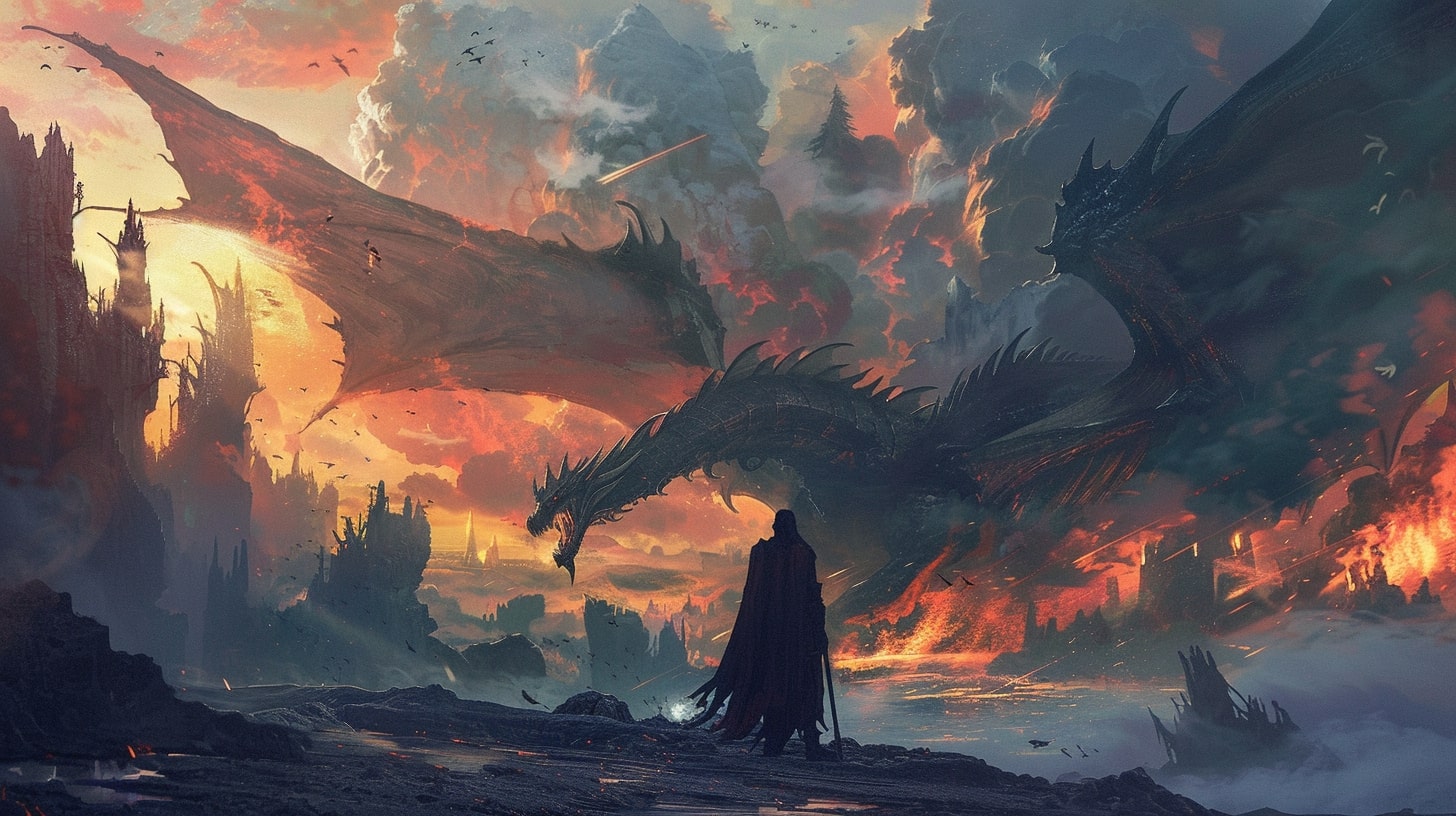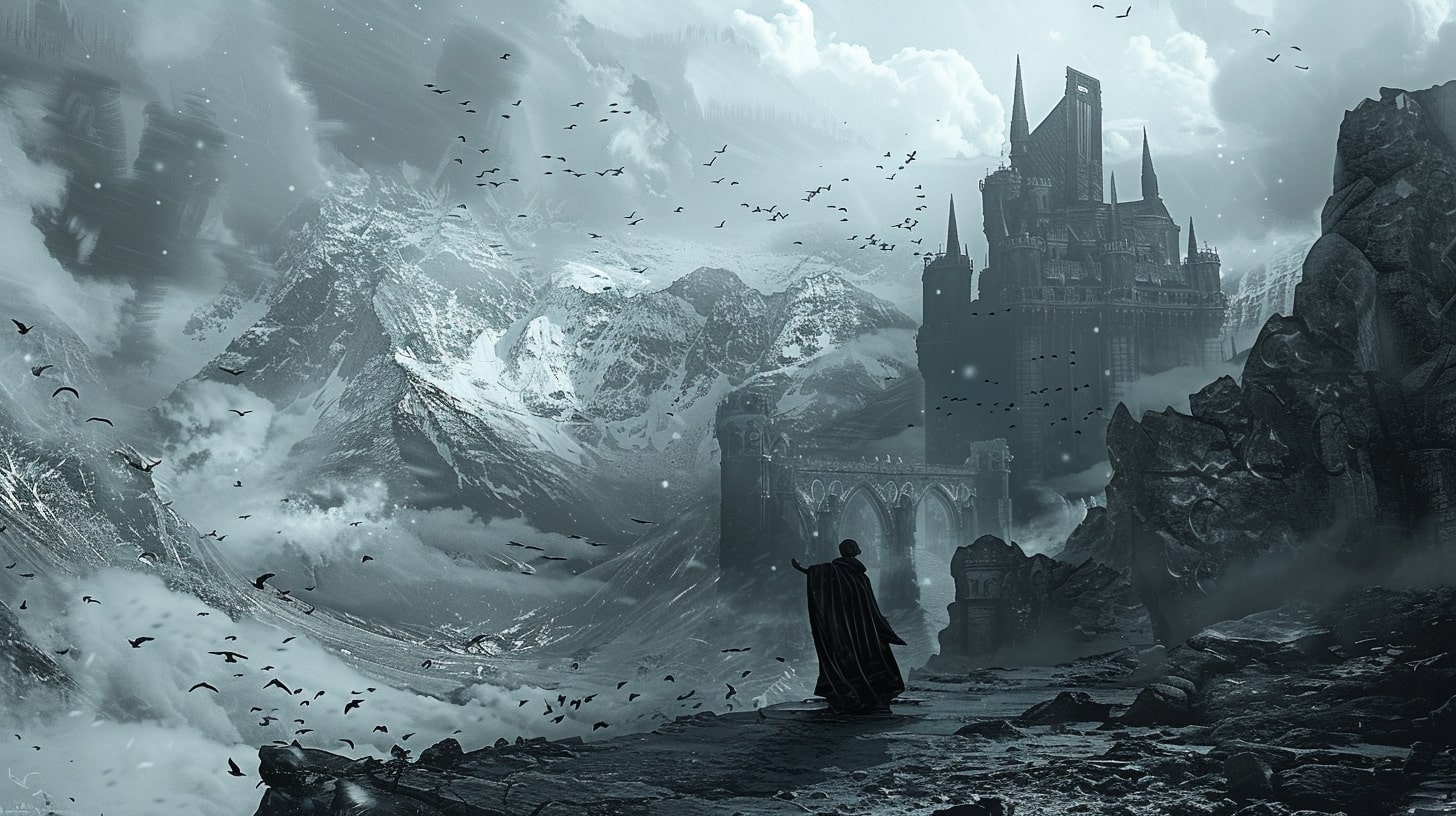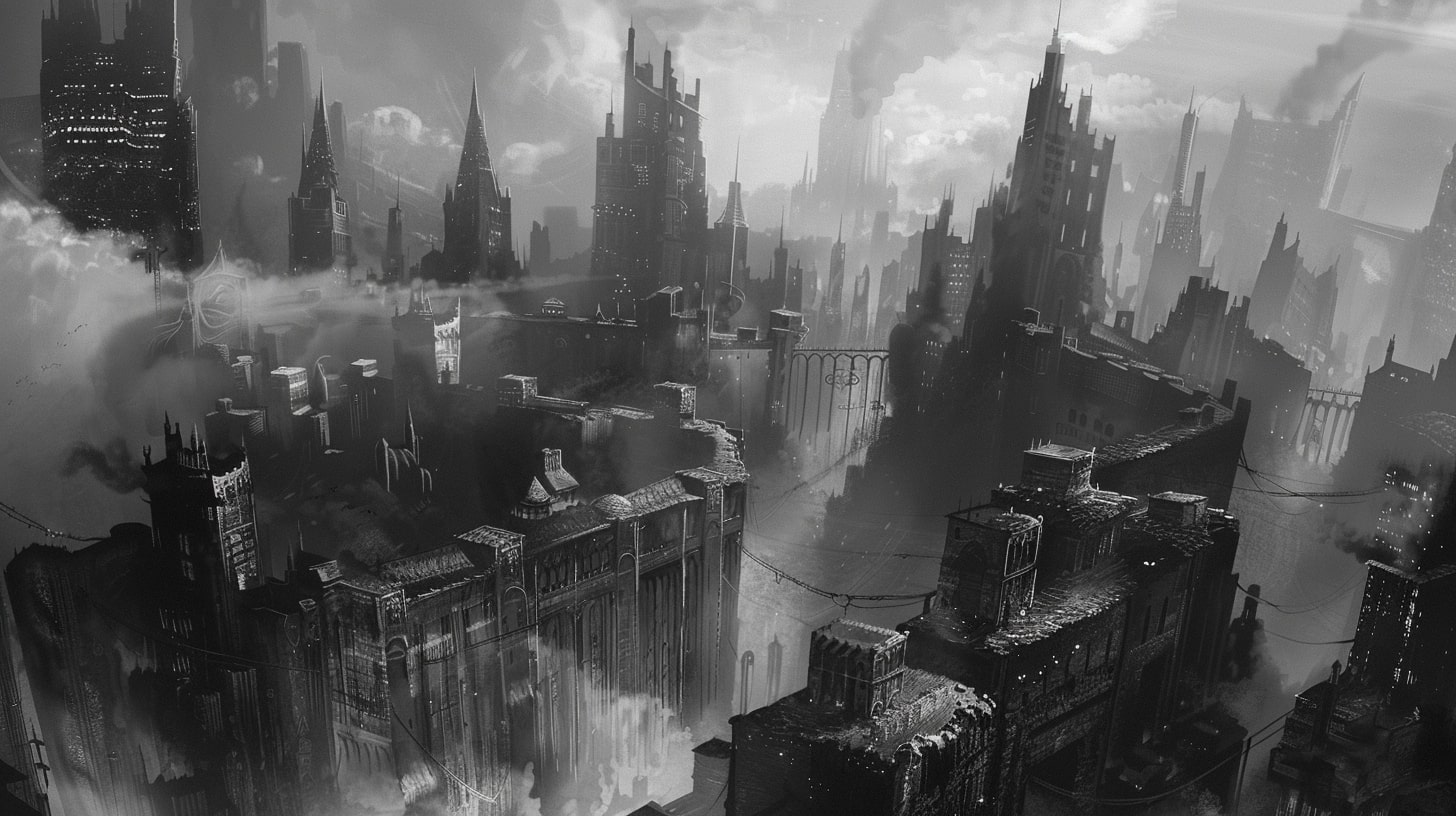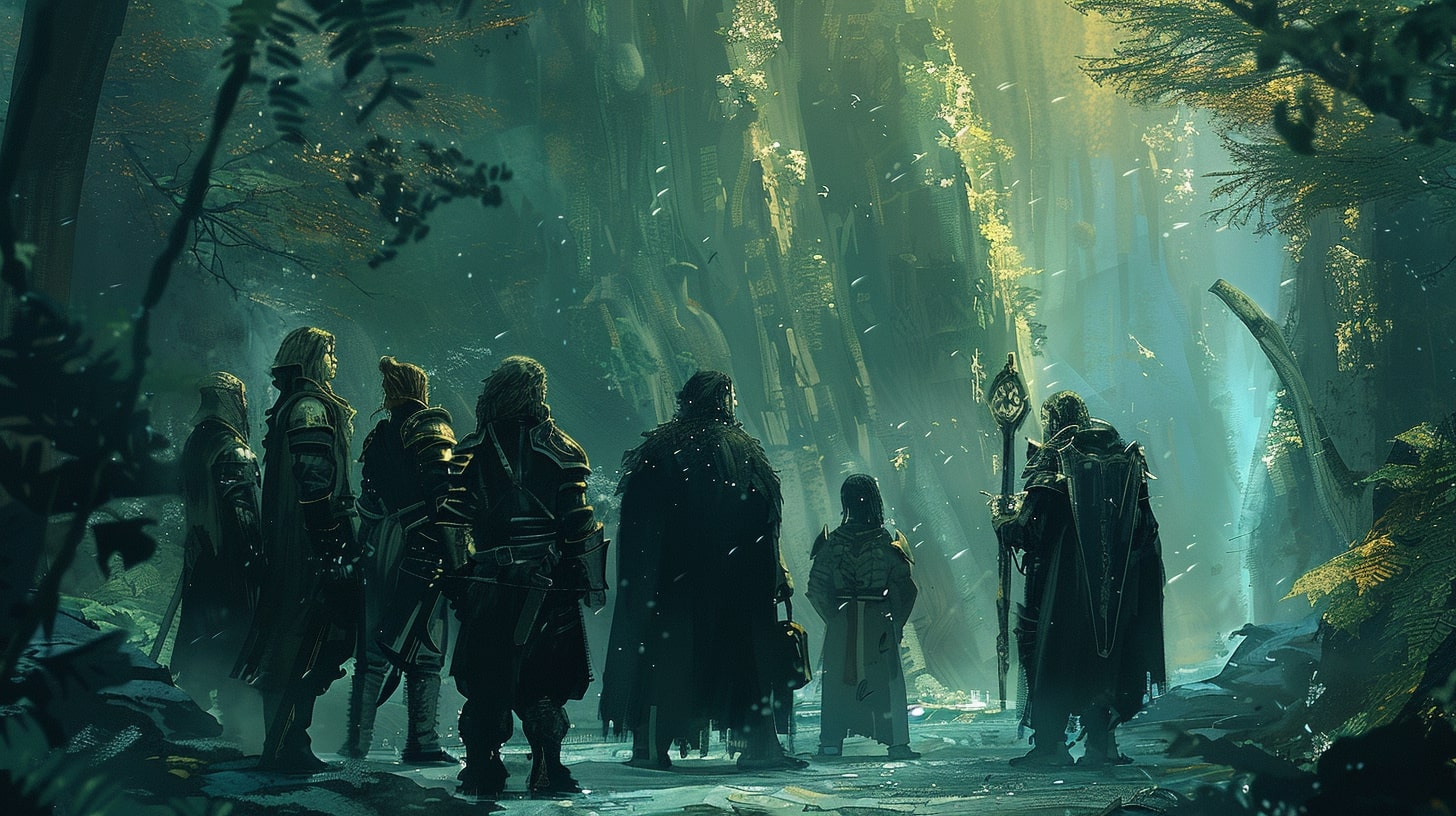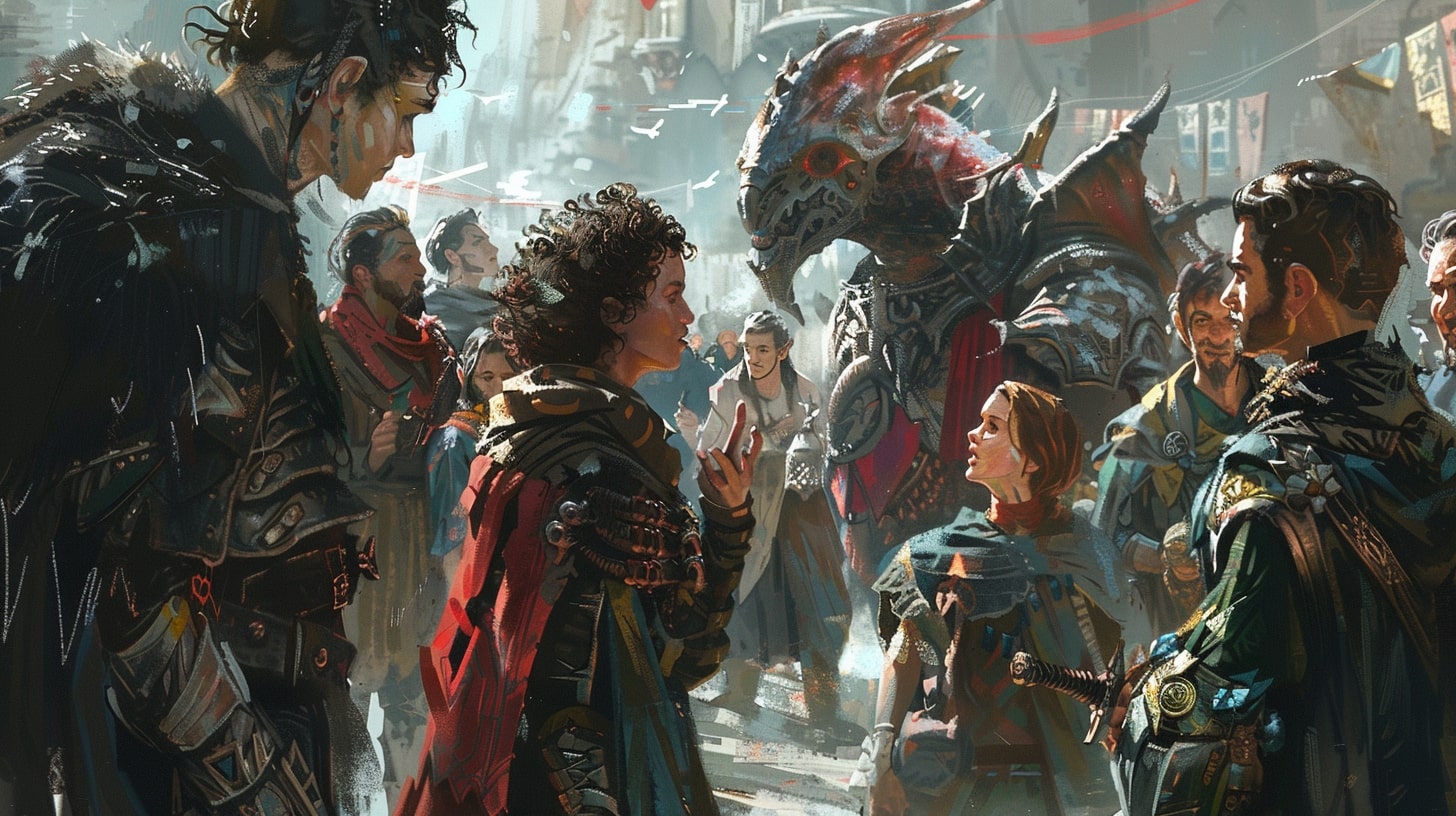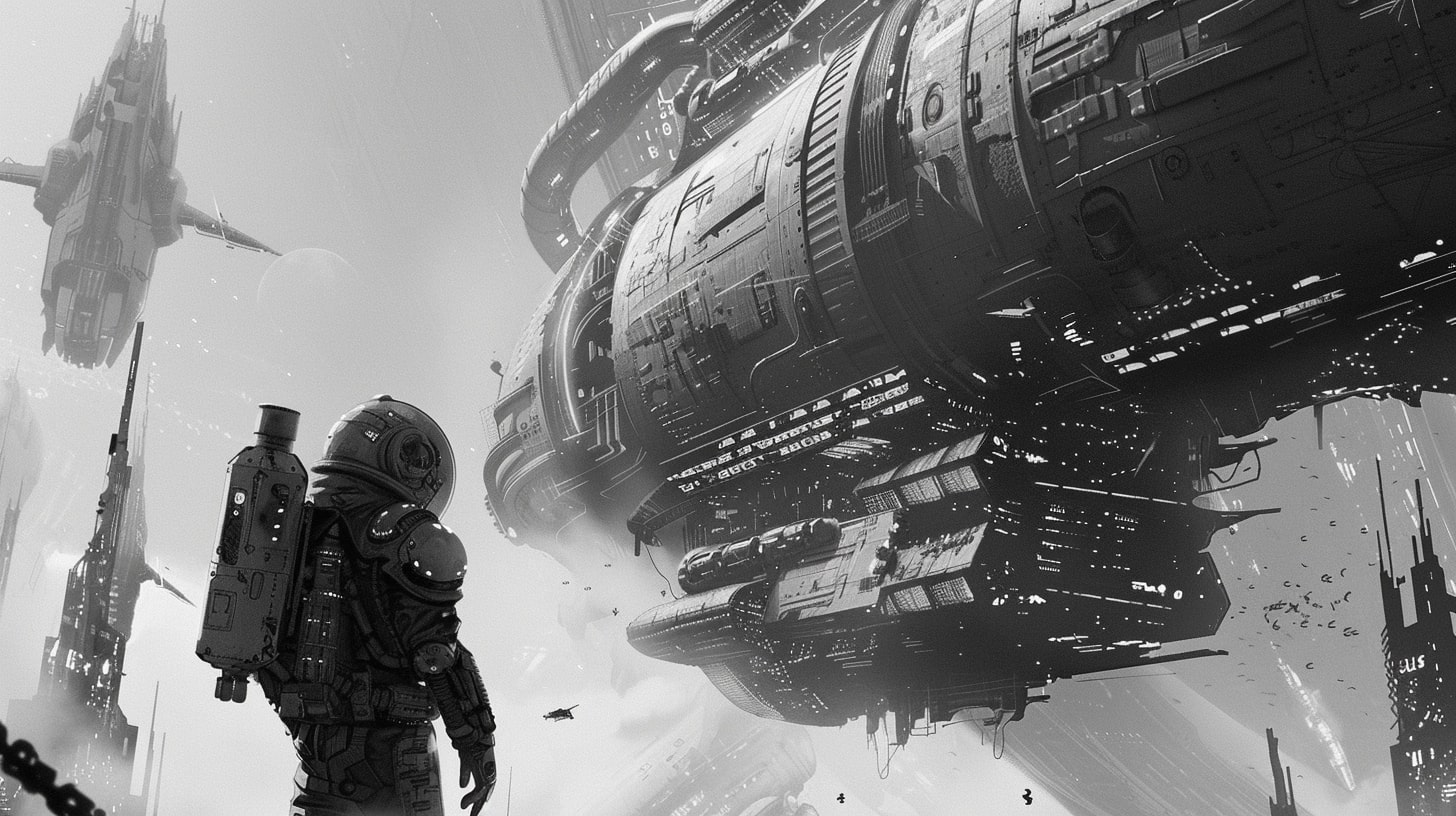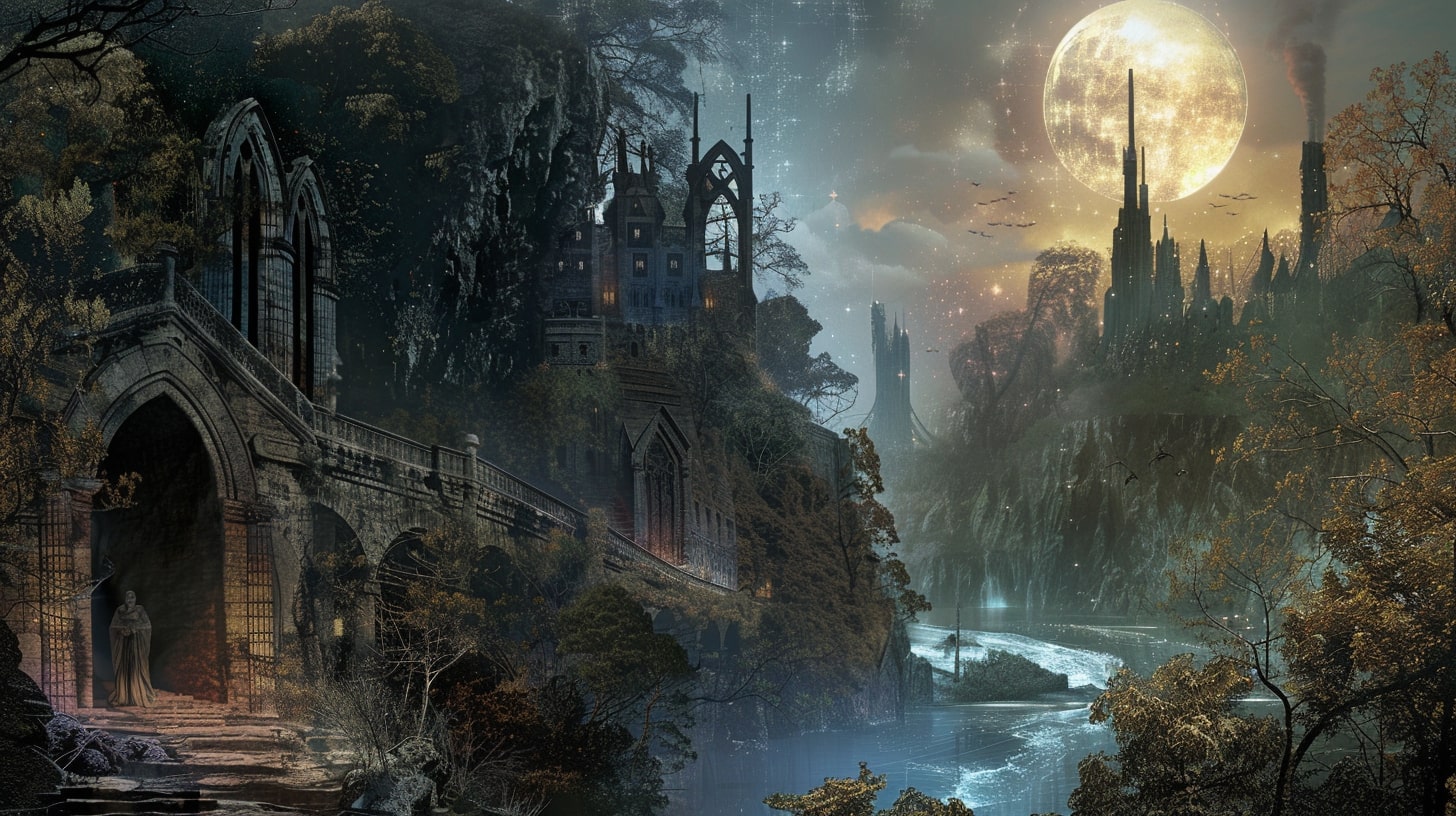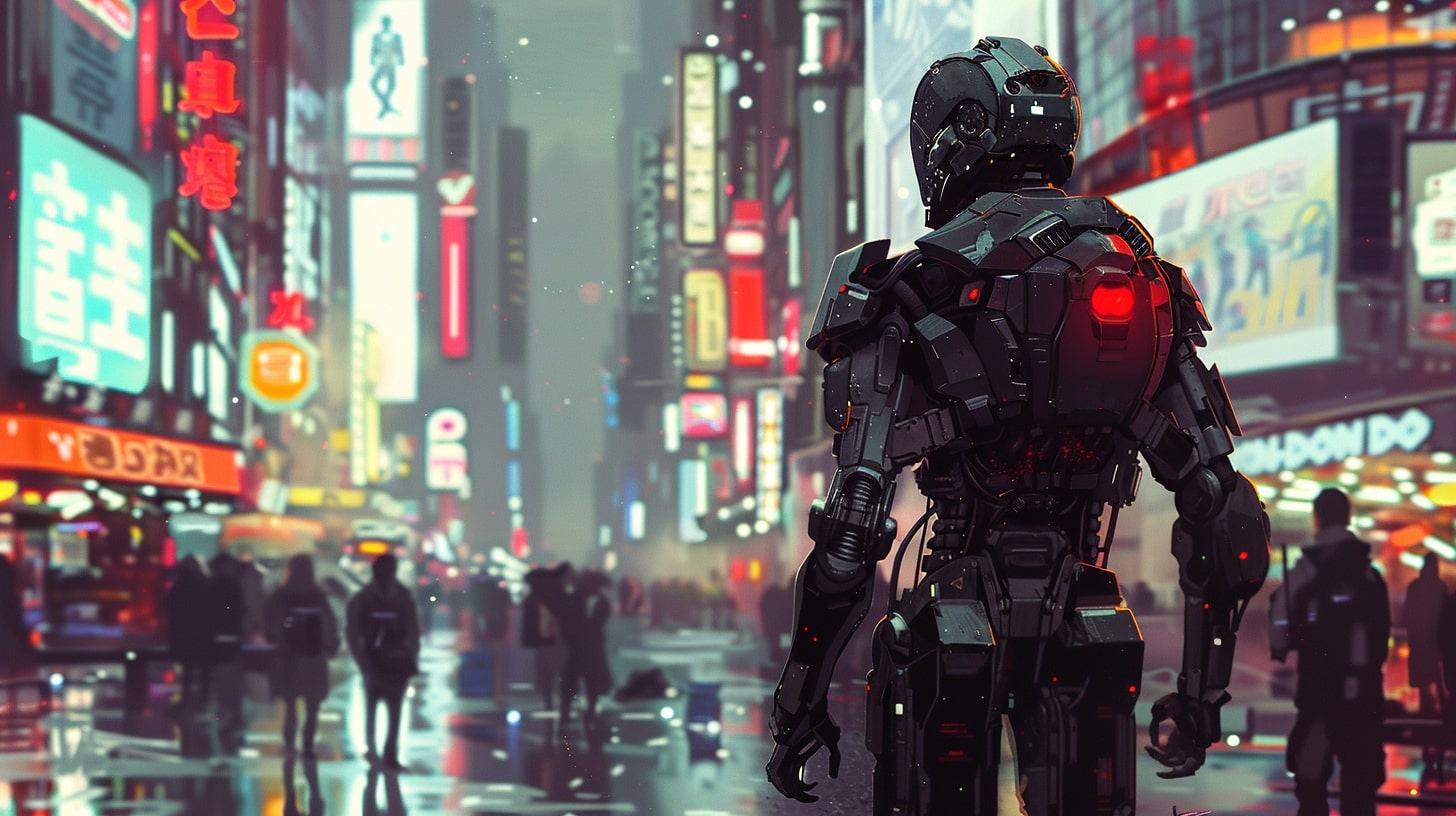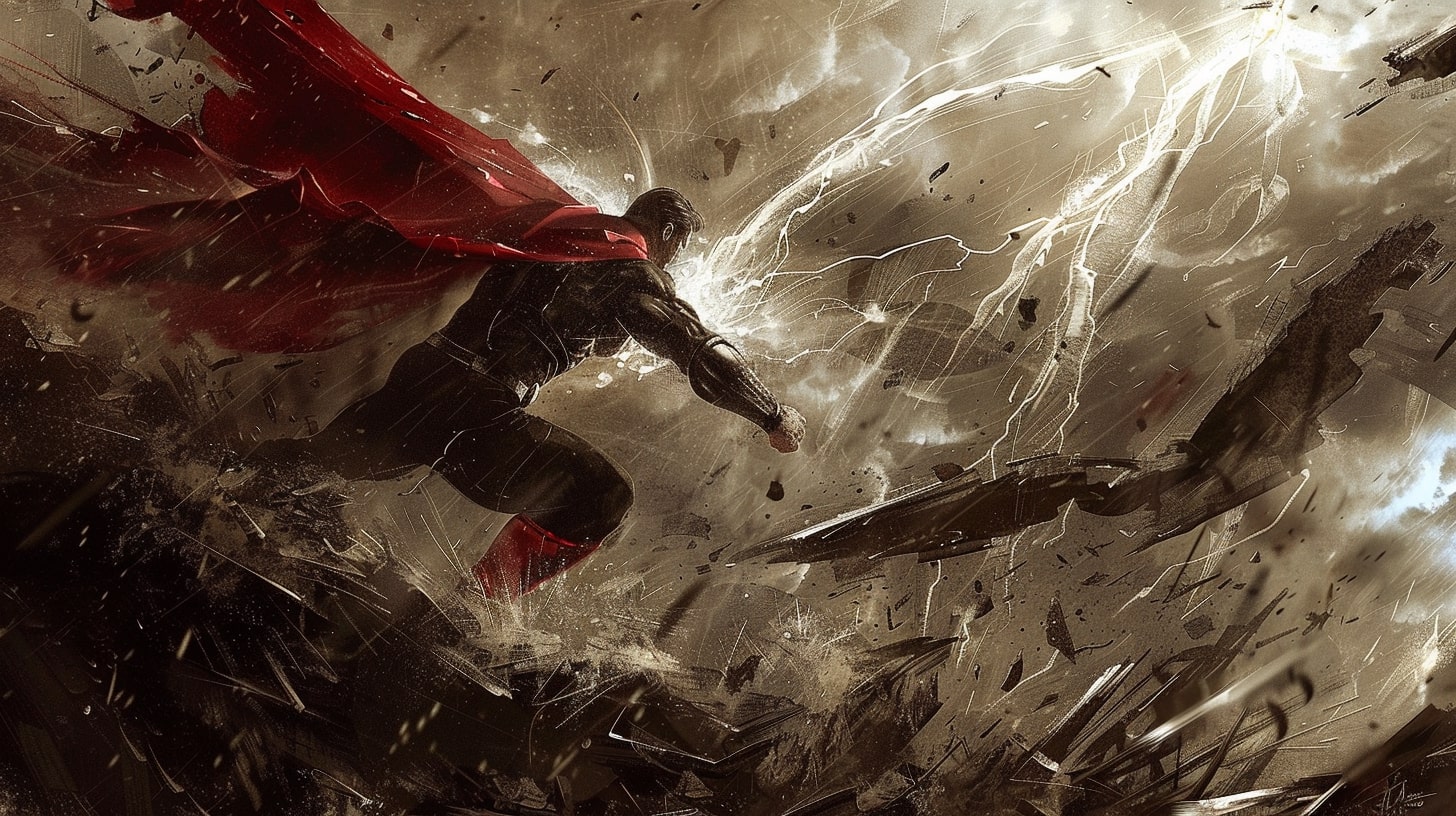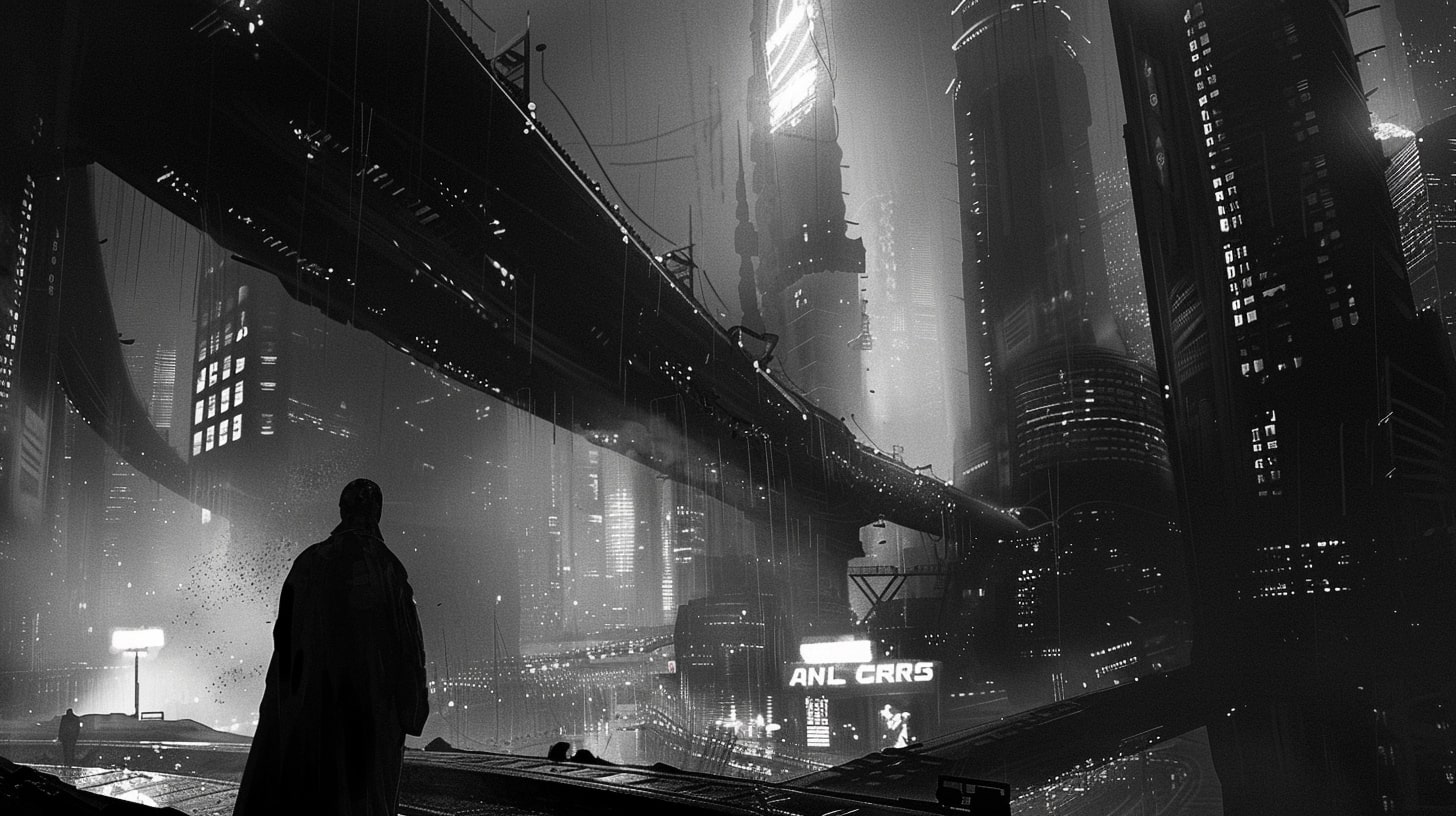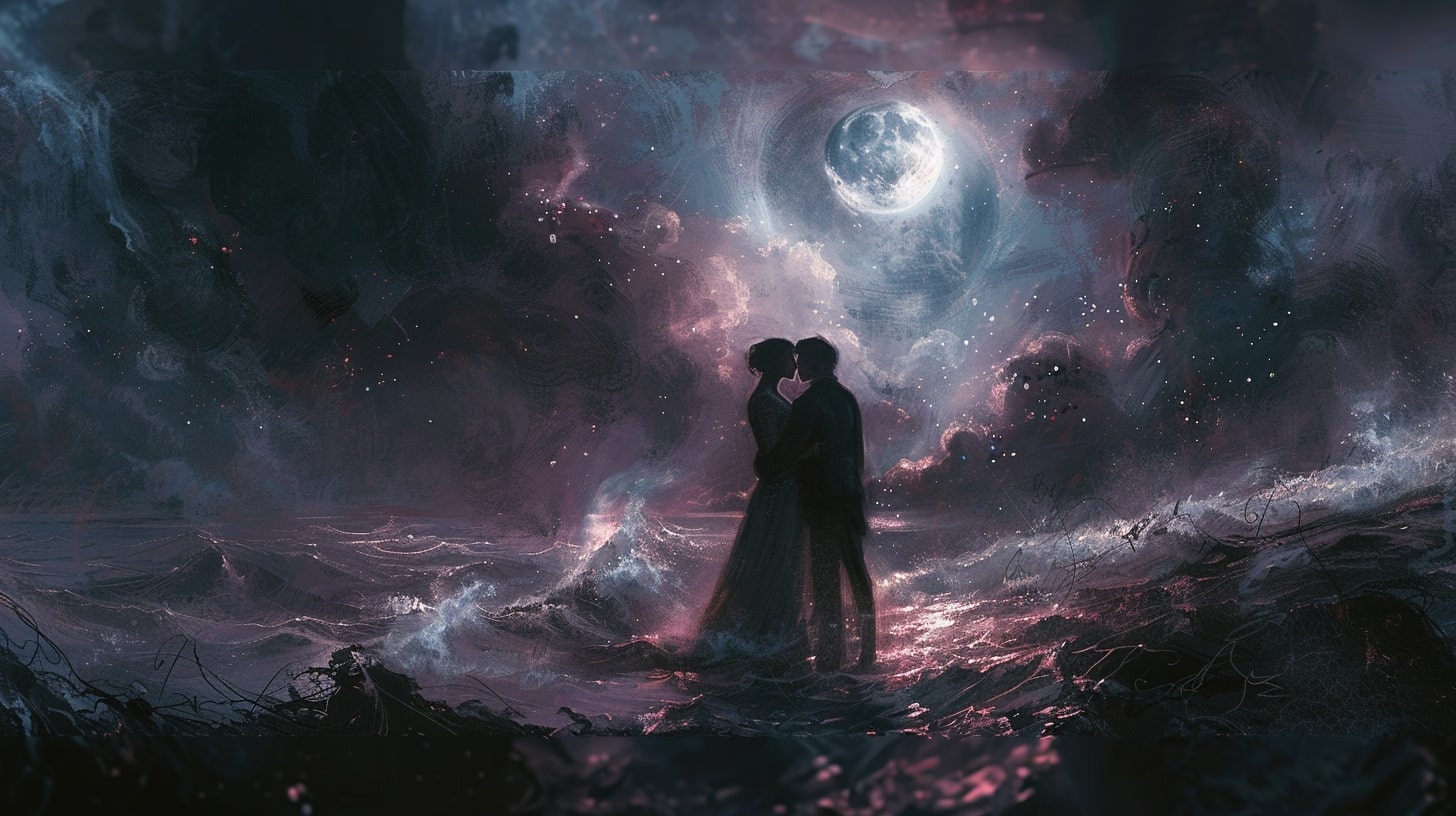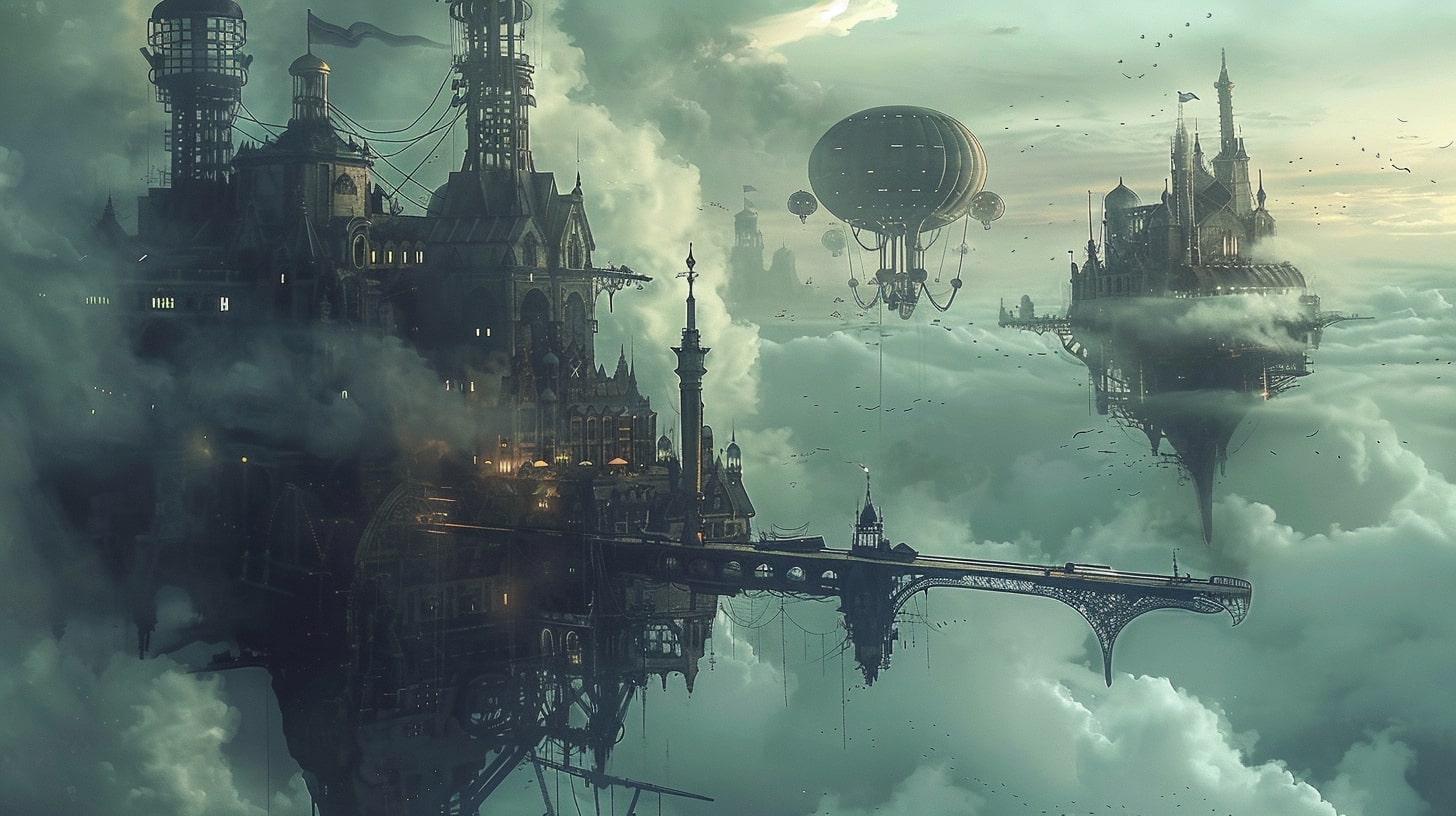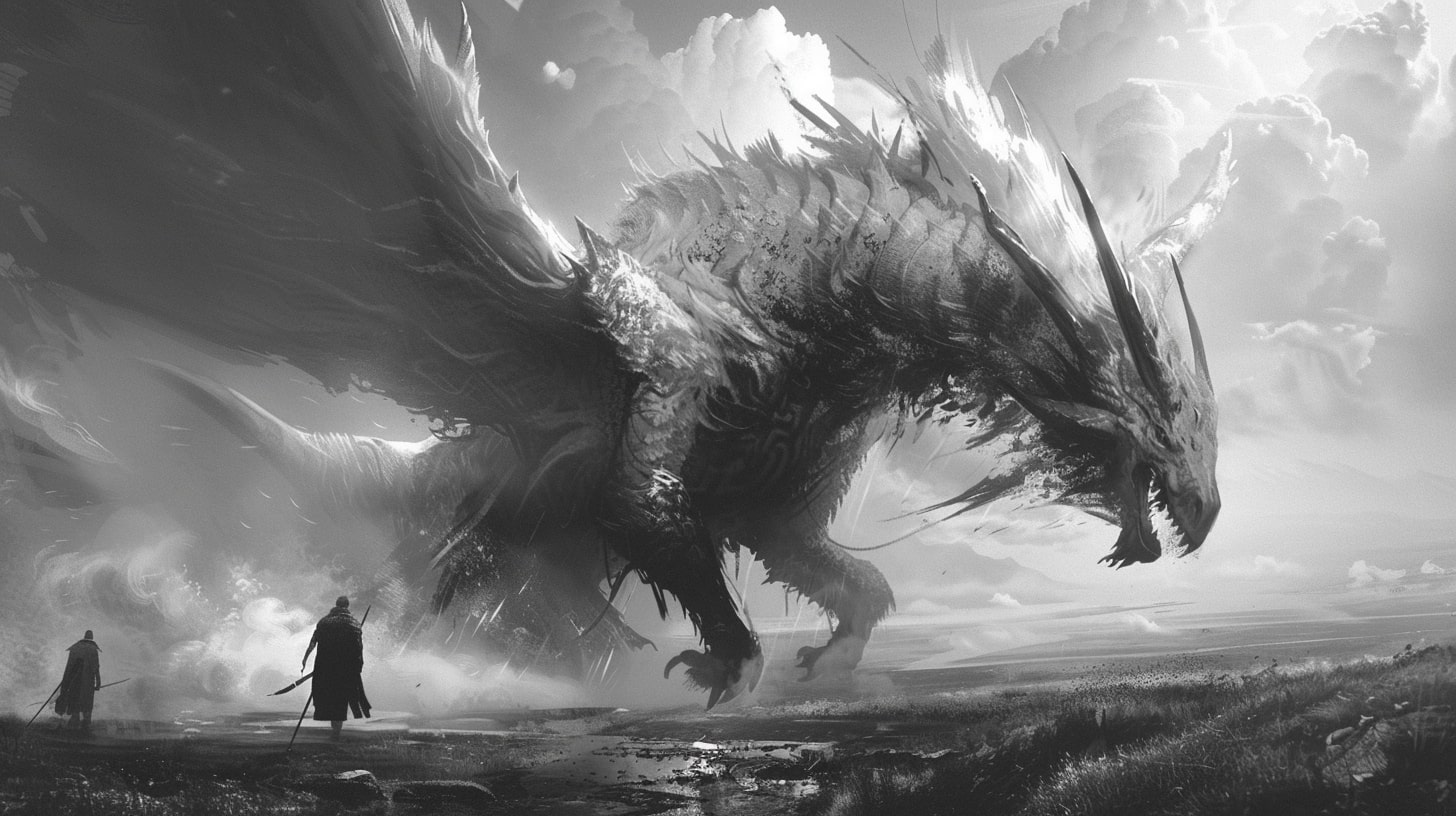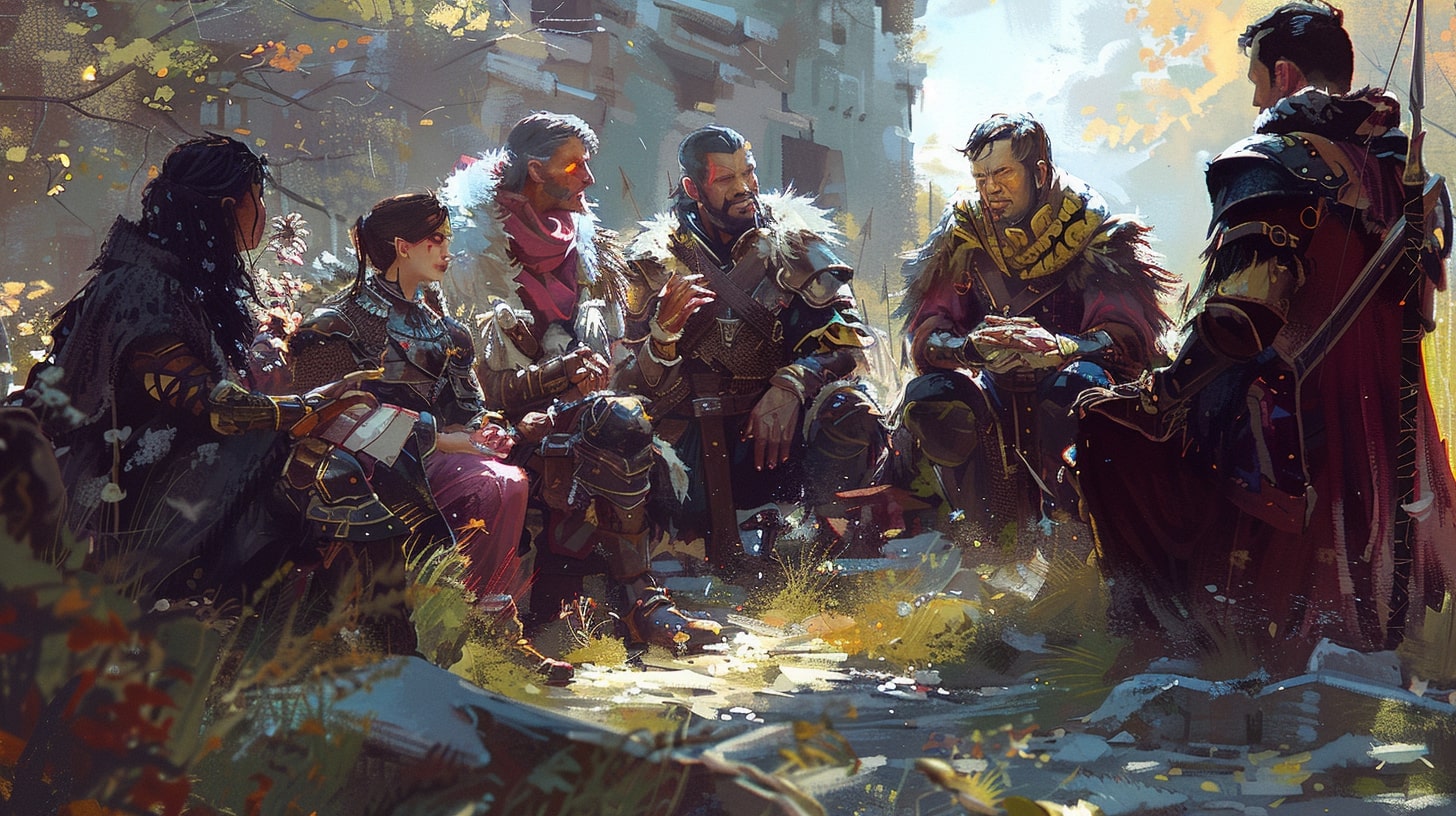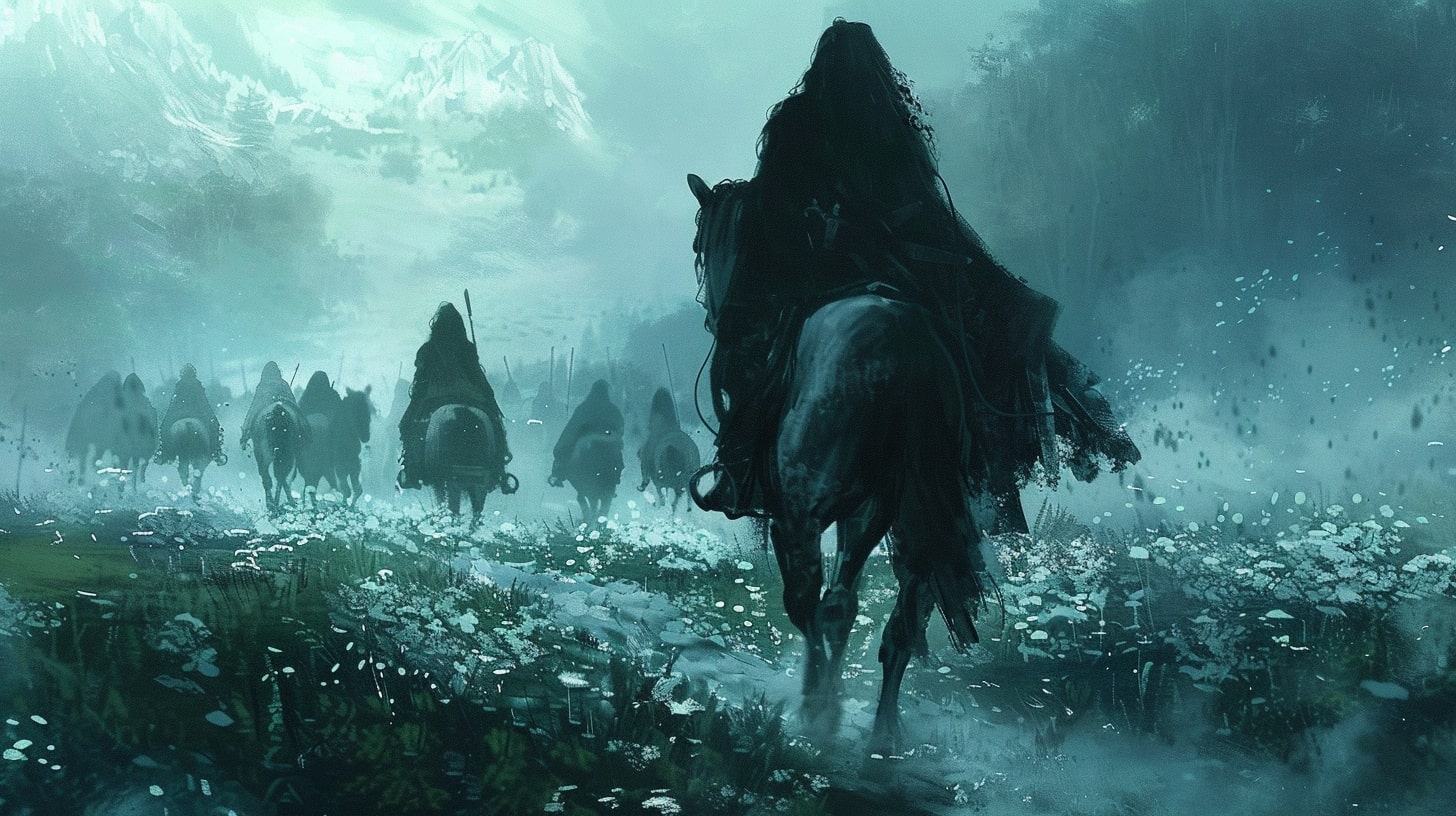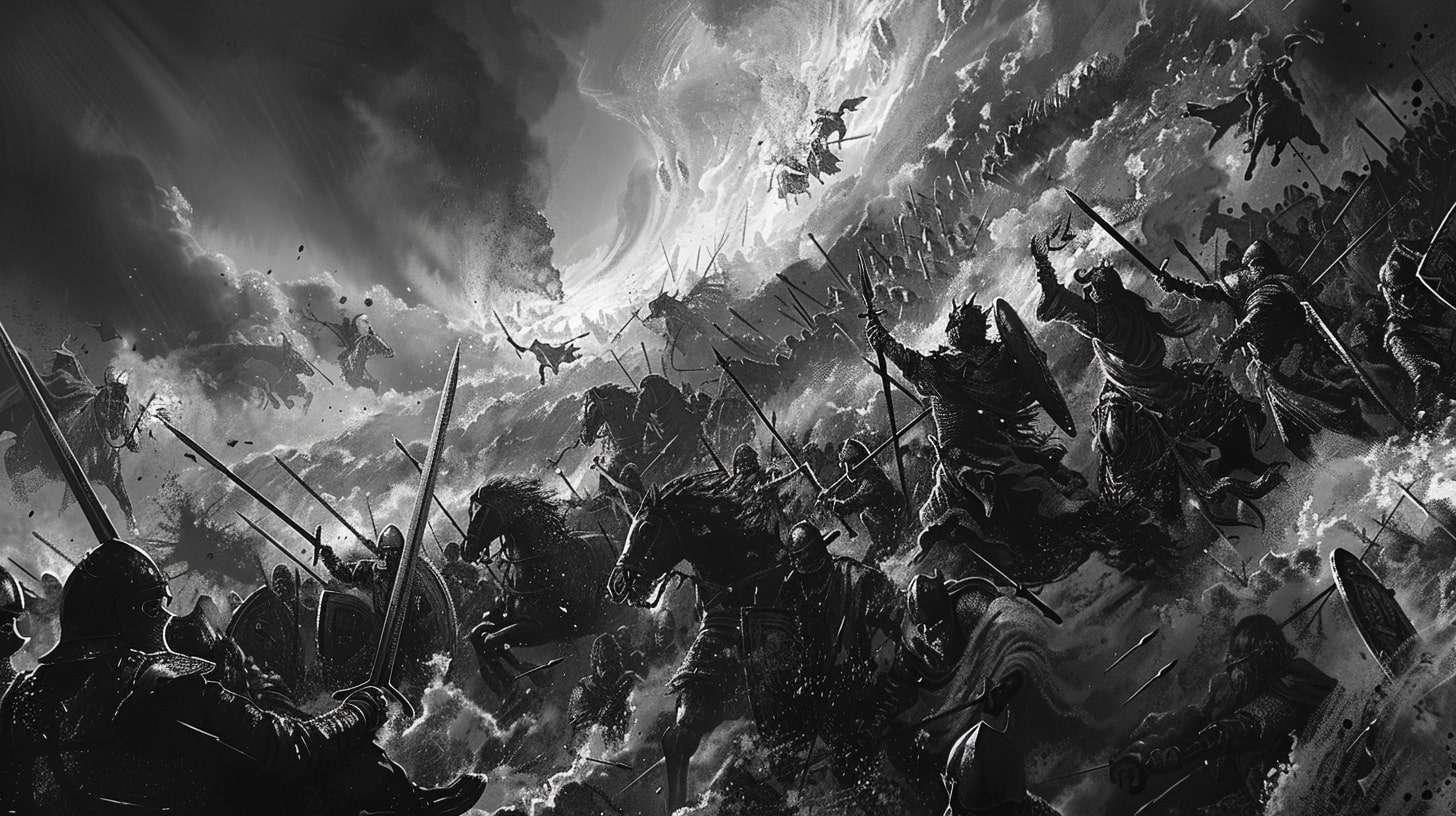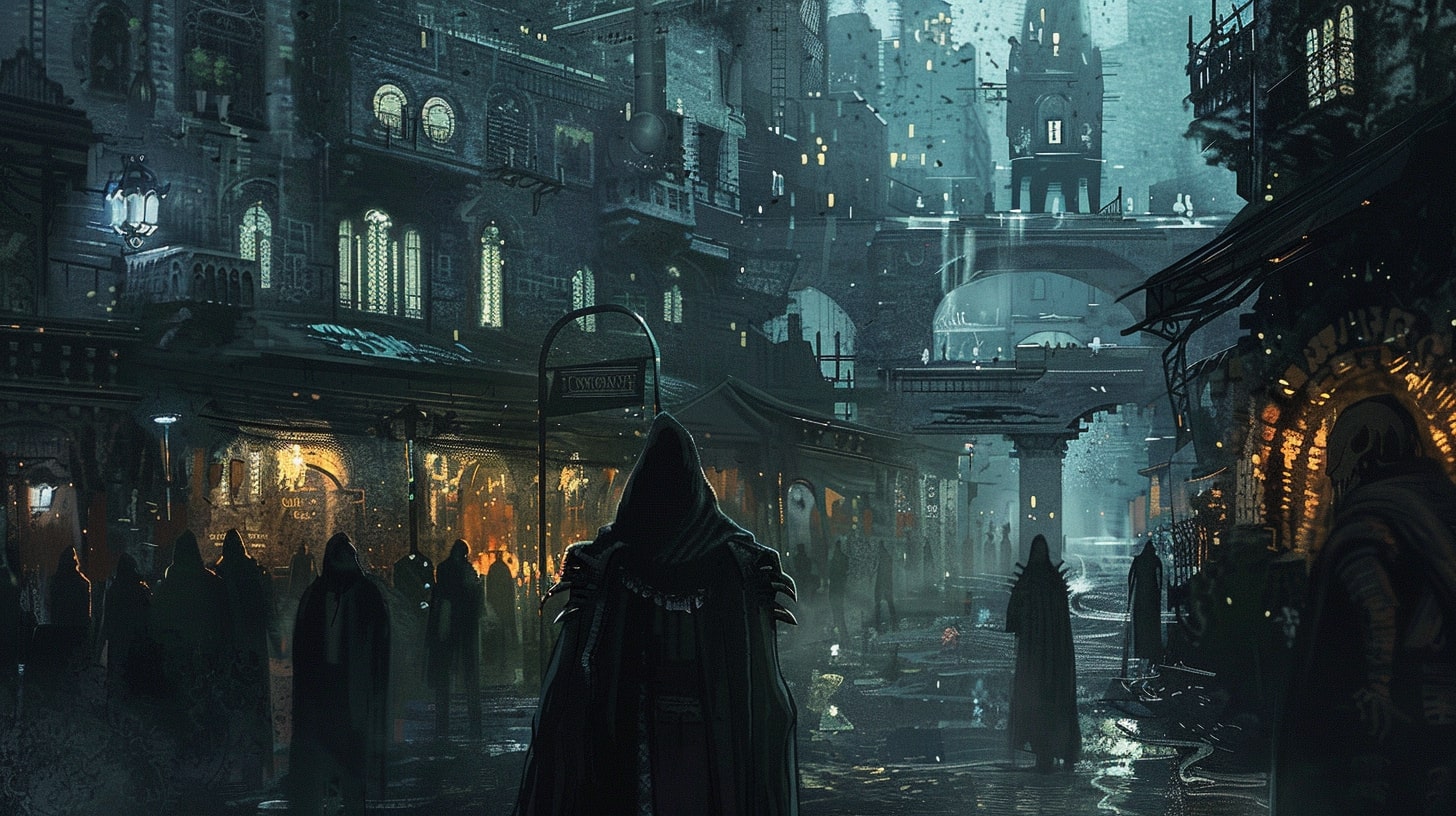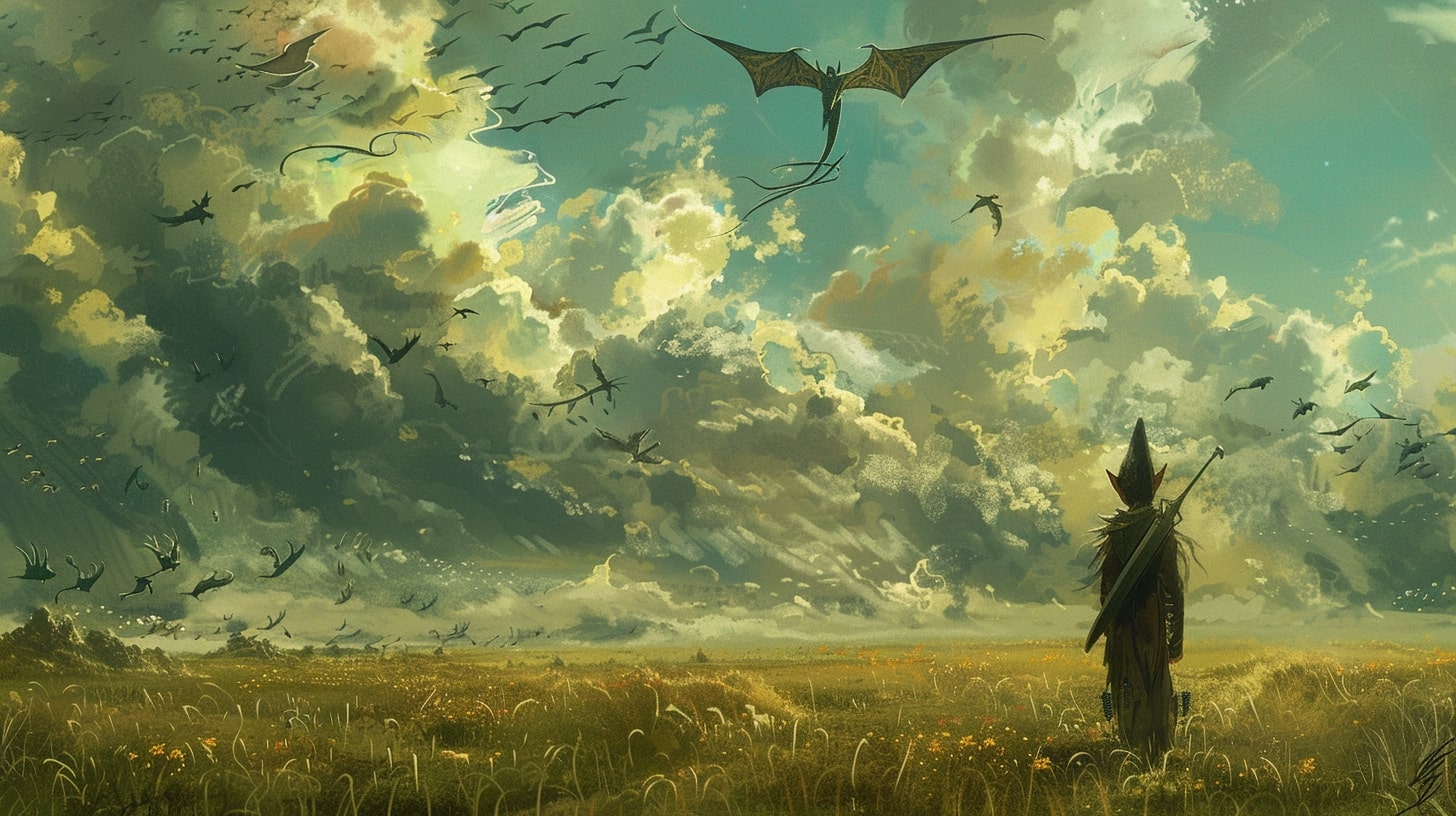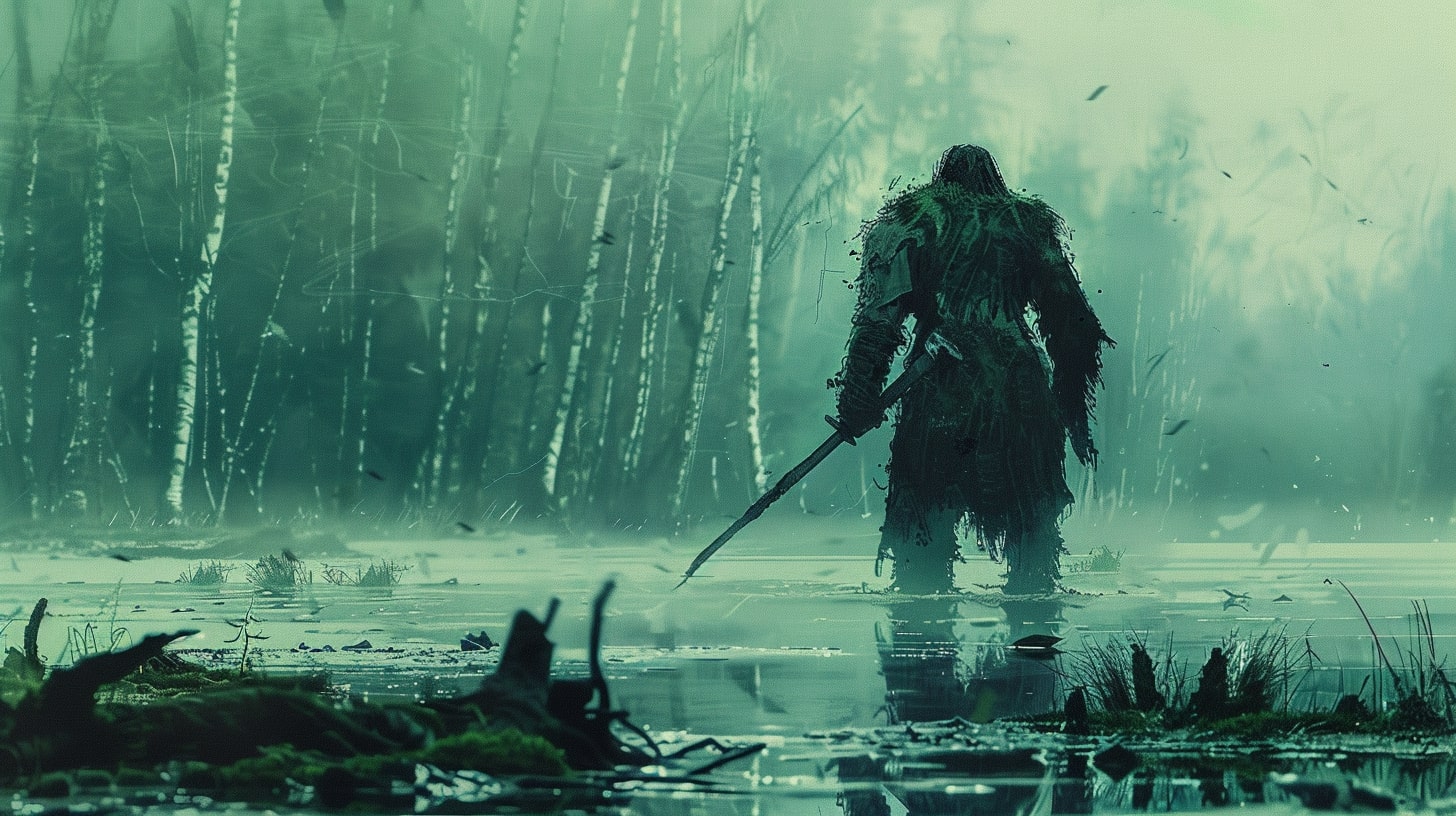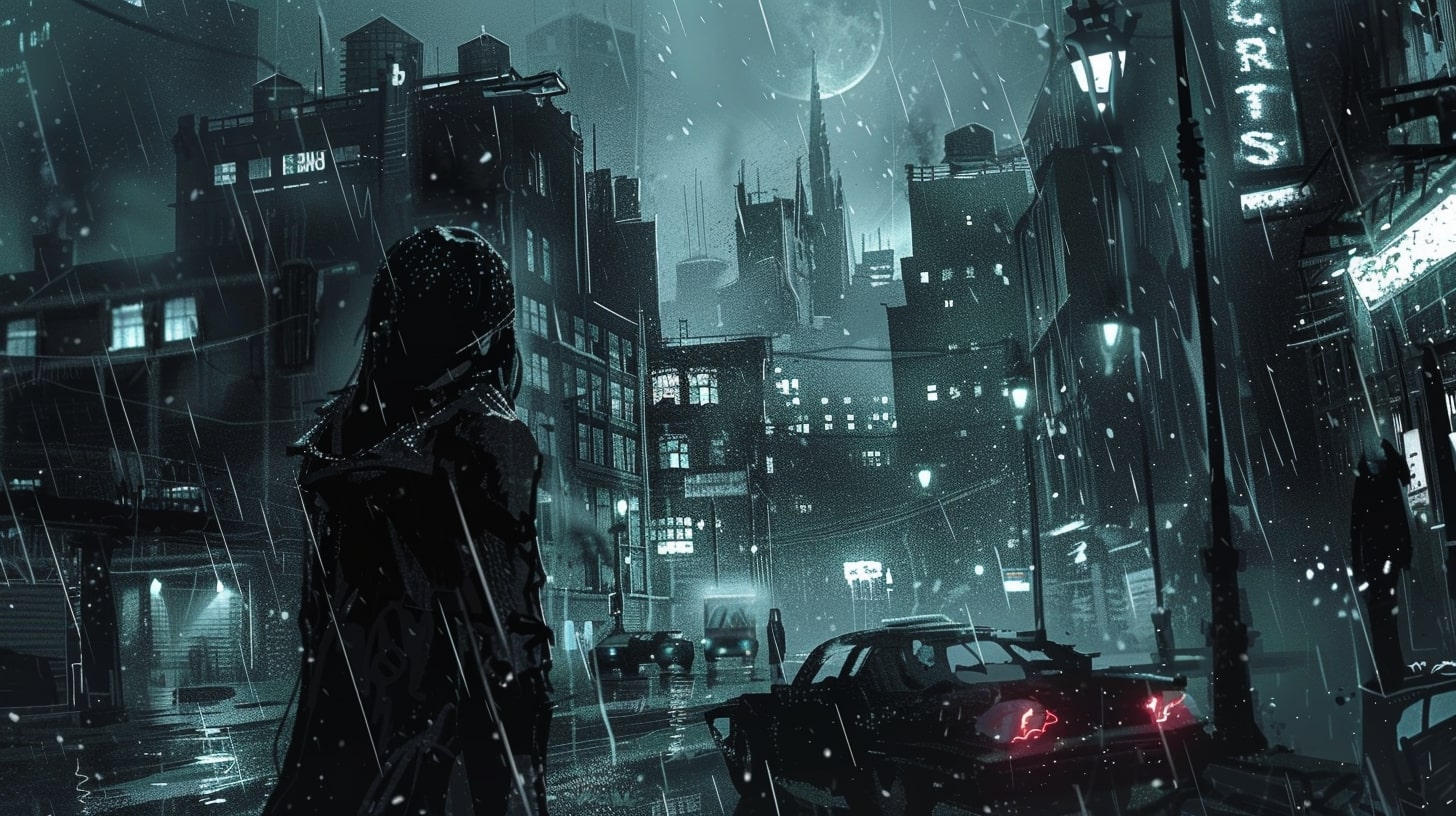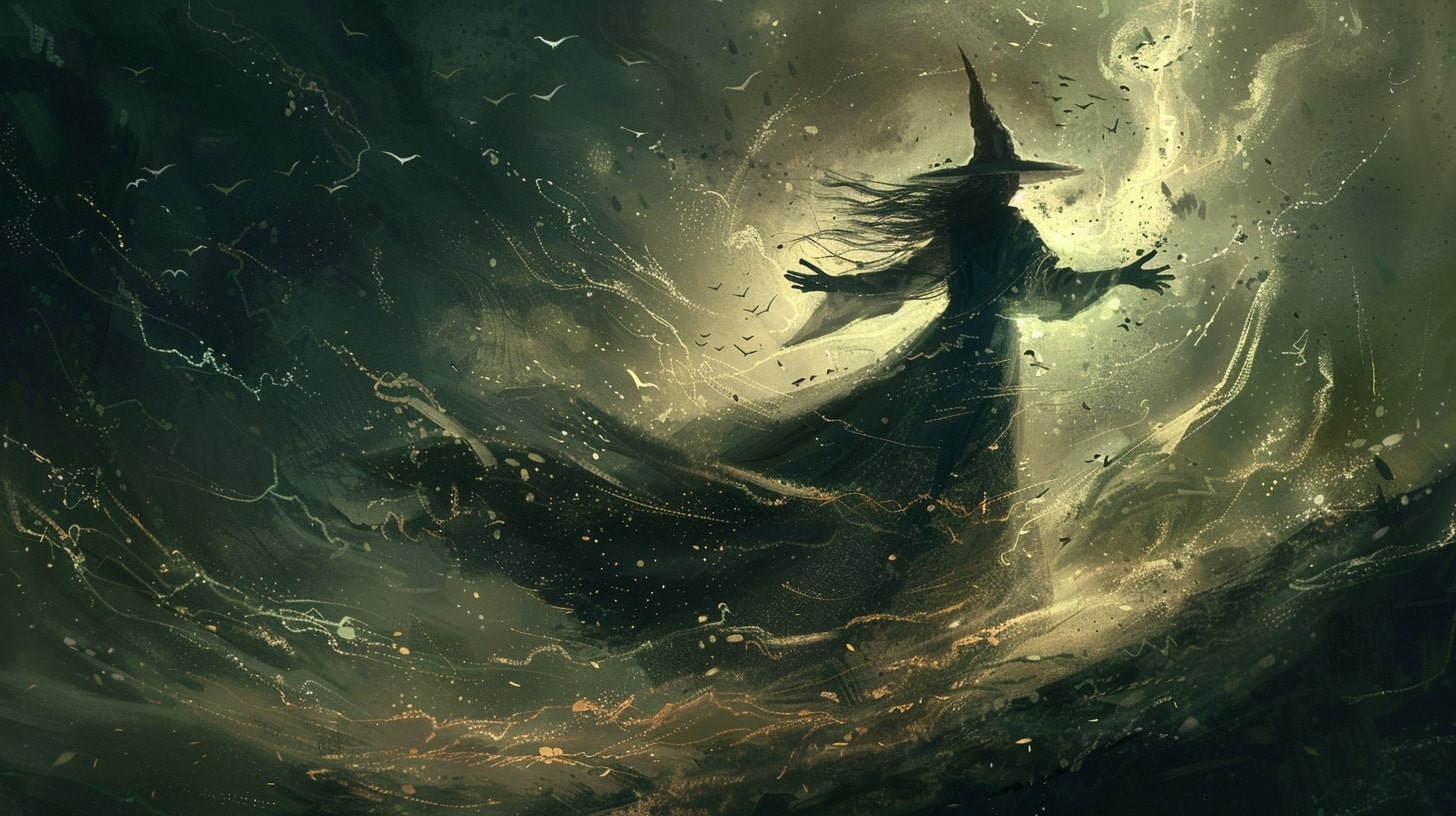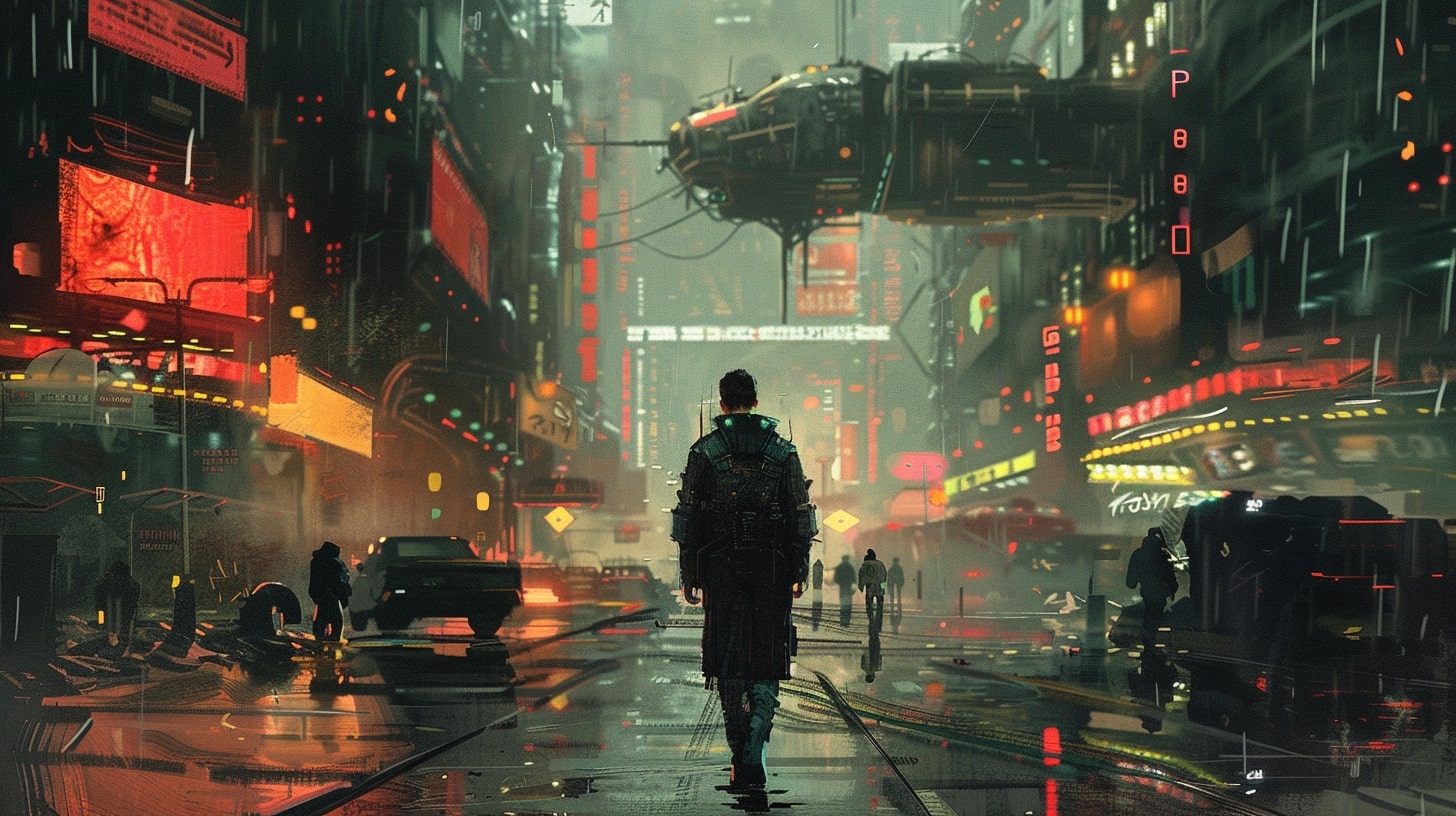Introduction to Science Fiction Writing
Welcome to the captivating world of science fiction writing! When it comes to writing science fiction it's important to understand the ins and outs of the genre. While it's great to be unique and innovative, push things too far and you'll lose the core audience that loves this genre so much.
So what we're going to do is explore different science fiction writing techniques to get a grasp on what you need to do to stand out in this genre of fantasy writing.
Why Science Fiction?
Science fiction offers writers a boundless realm of possibilities, where imagination knows no limits. It allows you to explore uncharted territories, envision futuristic worlds, and tackle complex ideas.
By blending scientific concepts, technological advancements, and speculative elements, science fiction enables you to create thought-provoking narratives that push the boundaries of what is known and possible.
As a science fiction writer, you have the freedom to transport readers to distant galaxies, envision alternate realities, and contemplate the consequences of scientific advancements. Science fiction allows you to explore the impact of technology on society, delve into ethical dilemmas, and examine the human condition in extraordinary circumstances.
By immersing yourself in the world of science fiction, you can captivate readers with thrilling adventures, profound insights, and imaginative storytelling.
Key Elements of Science Fiction
Science fiction stories are characterized by several key elements that set them apart from other genres. These elements help create rich and immersive worlds, engaging characters, and thought-provoking narratives. Here are some essential elements to consider when writing science fiction:
Speculative Science and Technology: Science fiction often incorporates speculative concepts and futuristic technologies that impact the story's setting, plot, and characters. From faster-than-light travel to advanced artificial intelligence, the possibilities are endless.
Worldbuilding: Science fiction relies heavily on worldbuilding to create vivid and believable settings. This involves crafting unique societies, cultures, planets, or dimensions that immerse readers in an intricately constructed universe. Be sure to check out our article on building a fantasy city for tips on creating immersive settings.
Exploration of Futuristic Concepts: Science fiction allows you to explore futuristic concepts, such as time travel, genetic engineering, or interstellar colonization. By pushing the boundaries of what is known and possible, you can introduce captivating ideas that challenge readers' perceptions.
Incorporation of Science and Technology: Science fiction often incorporates scientific principles and technological advancements to ground the story in a plausible framework. Incorporating accurate scientific details adds authenticity to your narrative and enhances the reader's immersion.
Exploration of Social and Ethical Issues: Science fiction provides a platform to examine social and ethical issues through the lens of futuristic settings. By integrating these themes into your story, you can prompt readers to contemplate the consequences of scientific advancements and reflect on the implications for society.
By understanding and incorporating these key elements, you can master the art of science fiction writing and take readers on extraordinary journeys through the vast expanse of the imagination. So, strap in and get ready to embark on an exhilarating adventure as you explore the techniques that will bring your science fiction stories to life.
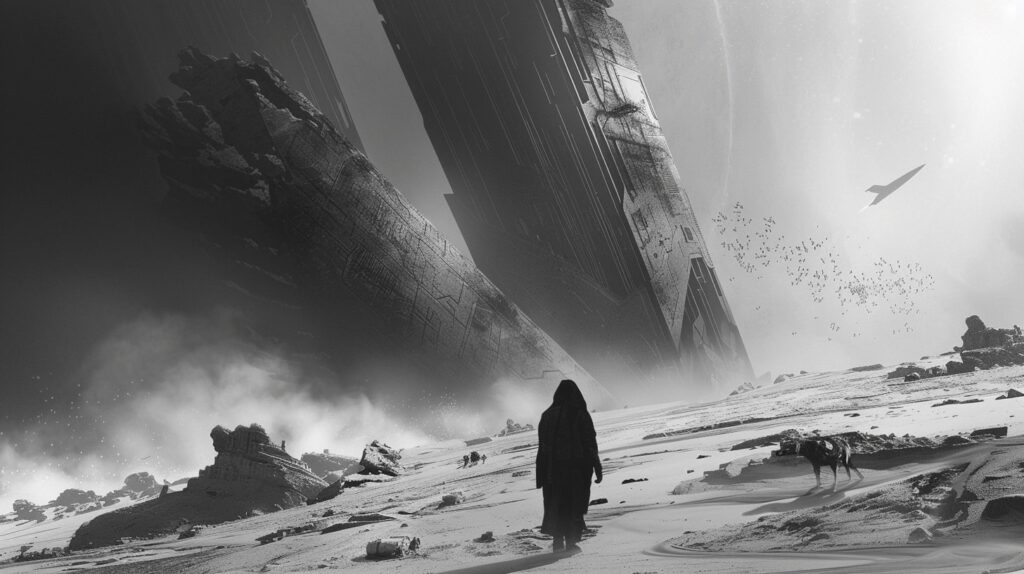
Science Fiction Writing Techniques: Building the Foundation
To embark on your science fiction writing journey, it is essential to lay a strong foundation. This foundation consists of imagination and creativity as well as research and worldbuilding.
Imagination and Creativity
Imagination and creativity are at the core of science fiction writing. They allow you to explore new ideas, envision futuristic worlds, and develop unique concepts. Let your imagination run wild as you brainstorm ideas for your science fiction story.
Consider the possibilities of advanced technology, space exploration, time travel, and alternate realities. Allow yourself to think beyond the boundaries of the present and let your creativity flourish.
To nurture your imagination and creativity, engage in activities that inspire you. Read science fiction books and stories, watch sci-fi movies and shows, and immerse yourself in the genre. This exposure will expose you to different ideas and storytelling techniques, helping to fuel your imagination and expand your creative horizons.
Research and Worldbuilding
While imagination fuels the creative aspects of science fiction writing, research and worldbuilding provide the necessary foundation for believability and coherence. As you develop your science fiction story, invest time in conducting research to ensure accuracy and plausibility within the parameters of your fictional world.
Consider the scientific principles and concepts that underpin your story. Research theories, advancements, and trends in fields such as physics, biology, astronomy, and technology. This knowledge will enable you to integrate scientific elements into your story with credibility.
Additionally, worldbuilding is a crucial aspect of science fiction writing. Create a comprehensive and consistent fictional world that encompasses the setting, culture, history, and societal structures of your story.
Develop the rules and limitations of your world, considering how the presence of science and technology impacts various aspects of life. This attention to detail will enhance the immersive experience for your readers.
By building a strong foundation of imagination, creativity, research, and worldbuilding, you will be well-equipped to dive into the captivating world of science fiction writing. Remember to refer to our article on how to write fantasy novels for additional tips and techniques that can be applied to science fiction writing as well.

Developing Engaging Characters
In the realm of science fiction writing, developing engaging characters is essential to captivating your readers. Whether they are the heroes or villains of your story, crafting unique protagonists and creating memorable villains will bring depth and excitement to your narrative.
Crafting Unique Protagonists
When creating protagonists for your science fiction story, aim to make them distinct and relatable. Your main character should have a compelling personality and a clear motivation that drives their actions throughout the plot. Consider their background, strengths, weaknesses, and how they navigate the challenges presented by the science fiction world you've built.
Additionally, think about the diversity of your characters. Science fiction provides a great opportunity to incorporate characters from various backgrounds, cultures, and identities. This not only adds richness to your story but also allows readers to connect with characters who reflect their own experiences and perspectives.
To create well-rounded protagonists, try to explore their emotional journey and growth throughout the story. Show their internal struggles, fears, and desires. Allow them to make mistakes and learn from them. This will make your characters more human and relatable to your audience.
Creating Memorable Villains
In science fiction, memorable villains are just as important as compelling protagonists. A well-crafted villain adds conflict, tension, and depth to your story. When creating your antagonists, consider the following:
- Motivation: Give your villains clear and believable motivations for their actions. Explore their desires, fears, or the circumstances that led them down the path of villainy. This will make their actions more understandable, even if not justifiable.
- Complexity: Avoid one-dimensional villains. Instead, develop multi-dimensional characters with their own histories, conflicts, and internal struggles. This complexity will make them more interesting and unpredictable.
- Conflicts with Protagonists: Create conflicts and clashes of values between your villains and protagonists. This will heighten the stakes and create compelling story dynamics.
- Unique Traits: Give your villains unique characteristics, whether it's a distinctive physical appearance, a particular skill, or an unusual personality trait. These traits will make them stand out in the minds of your readers.
Remember, the best villains are those that readers can understand on some level, even if they don't agree with their actions. By delving into their motivations and complexities, you can create villains that are as captivating as your protagonists.
Developing engaging characters, both heroes and villains, is a critical aspect of mastering science fiction writing. By crafting unique protagonists and creating memorable villains, you will bring your science fiction world to life and captivate your readers throughout your story. For more tips on developing compelling characters, check out our article on developing fantasy characters.
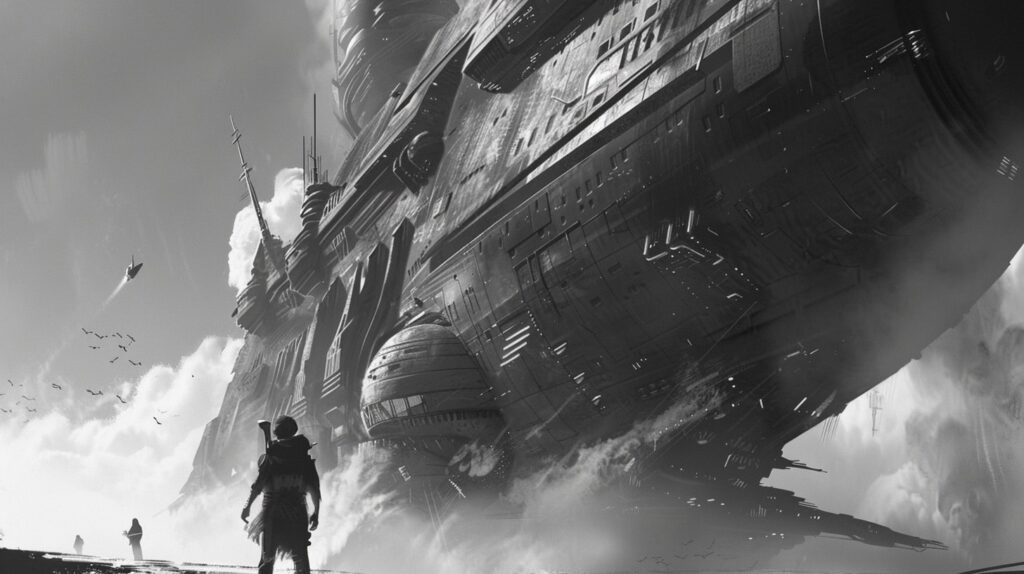
Plotting Science Fiction Stories
To captivate readers with your science fiction writing, it's essential to develop compelling and imaginative plots. In this section, we will explore two important aspects of plotting science fiction stories: exploring futuristic concepts and incorporating science and technology.
Exploring Futuristic Concepts
One of the defining features of science fiction is its ability to transport readers to the future, where new technologies, societies, and possibilities await. When plotting a science fiction story, let your imagination soar by envisioning a future world that is both plausible and intriguing.
Consider the following when exploring futuristic concepts for your story:
Technological advancements: Imagine how technology may evolve in the future. Will there be advanced artificial intelligence, virtual reality, or interstellar travel? Think about how these advancements shape society and the lives of your characters.
Social and cultural changes: Explore how society may change in the future. Will there be new political systems, cultural norms, or environmental challenges? Consider the impact these changes have on your characters and the conflicts they may face.
Scientific discoveries: Delve into the realm of scientific possibilities. Will there be breakthroughs in medicine, genetics, or space exploration? These scientific discoveries can add depth and complexity to your story's plot.
Incorporating Science and Technology
Science and technology play pivotal roles in science fiction stories. Incorporating these elements effectively can enhance the believability and immersion of your narrative. Here are a few tips to consider:
Research and accuracy: Conduct thorough research to ensure the scientific and technological aspects of your story are plausible. While creative liberties are allowed, grounding your story in scientific principles can make it more convincing.
Worldbuilding: Create a detailed and consistent world that incorporates the science and technology of your story. Consider how these elements shape the environment, culture, and daily lives of your characters.
Conflict and plot development: Utilize science and technology as catalysts for conflict and plot development. Explore the ethical dilemmas, consequences, and unforeseen complications that arise from advancements in science and technology.
Balance with characters and themes: While science and technology are important, remember to balance them with compelling characters and meaningful themes. This balance ensures that your story remains relatable and resonates with readers on an emotional level.
By exploring futuristic concepts and incorporating science and technology in your plot, you can create a captivating science fiction story that transports readers to new and exciting worlds. Remember to let your creativity run wild while grounding your ideas in plausibility. For more tips on mastering science fiction techniques, check out our article on how to write fantasy novels.
Writing Exciting Action and Adventure
In the world of science fiction, action and adventure play a vital role in captivating readers and keeping them engaged. To create a thrilling reading experience, it's important to master the art of crafting intense action scenes and building suspense and tension throughout your story.
Crafting Intense Action Scenes
To bring your action scenes to life, it's crucial to focus on descriptive writing that engages the reader's senses. By using vivid and precise language, you can paint a clear picture of the action unfolding. Consider the following tips when crafting intense action scenes:
- Short and punchy sentences: Use short, snappy sentences to increase the pace and create a sense of urgency.
- Show, don't tell: Instead of telling the reader what is happening, show it through descriptive action and dialogue.
- Use sensory details: Incorporate sensory details to immerse the reader in the scene. Describe the sights, sounds, smells, and even the adrenaline coursing through the characters' veins.
- Maintain clarity: While action scenes are fast-paced, it's important to maintain clarity so readers can follow the sequence of events. Use precise and concise language to avoid confusion.
By incorporating these techniques, you can make your action scenes come alive and keep readers on the edge of their seats.
Building Suspense and Tension
Suspense and tension are key elements in any science fiction story. They keep readers engaged and eager to find out what happens next. Here are some strategies to help you build suspense and tension effectively:
- Foreshadowing: Drop subtle hints about future events to create anticipation and intrigue. Foreshadowing can create a sense of impending danger or build up to a climactic moment.
- Timing and pacing: Control the timing and pace of your story to increase suspense. Build tension by gradually increasing the stakes and introducing obstacles that hinder the protagonist's progress.
- Uncertainty and unpredictability: Surprise your readers by introducing unexpected twists and turns in the plot. Keep them guessing about the outcome of certain events or the fate of the characters.
- Emotional investment: Develop multidimensional characters that readers care about. When readers are emotionally invested in the characters, they will feel a greater sense of suspense and concern for their well-being.
Remember to balance moments of action and suspense with quieter scenes that allow for character development and reflection. This ebb and flow will create a dynamic reading experience.
As you hone your skills in crafting intense action scenes and building suspense and tension, your science fiction writing will become more gripping and captivating.
Keep practicing and experimenting with different techniques to find your unique style and voice. For more tips on writing science fiction, check out our article on how to write fantasy novels.
Adding Depth with Themes and Messages
To elevate your science fiction writing, it's important to add depth by exploring social and ethical issues and conveying meaningful messages through your stories. By incorporating these elements, you can engage readers on a deeper level and create thought-provoking narratives.
Exploring Social and Ethical Issues
Science fiction provides a unique platform for exploring a wide range of social and ethical issues. By setting your story in a future or alternate world, you can examine contemporary issues from a different perspective, encouraging readers to reflect on the present. Some common social and ethical issues often explored in science fiction include:
Technology and its impact on society: Delve into the consequences of advancements in technology, such as artificial intelligence, genetic engineering, or virtual reality. Consider the ethical implications and how these advancements might affect individuals, communities, and the world at large.
Environmental concerns: Use your science fiction story to address pressing environmental issues, such as climate change, pollution, or resource depletion. Explore the potential consequences of inaction or highlight alternative approaches to sustainability.
Social inequality and discrimination: Create narratives that examine social justice issues, such as discrimination based on race, gender, or socioeconomic status. Develop characters and plotlines that challenge these inequalities and prompt readers to consider the impact of prejudice and oppression.
Ethical dilemmas: Craft scenarios that present complex ethical dilemmas, forcing characters and readers to grapple with difficult decisions. Explore the consequences of these choices and the moral implications they carry.
By exploring these social and ethical issues, you can infuse your science fiction story with substance and encourage readers to contemplate the world around them. Remember to weave these themes into your narrative organically, allowing them to enhance the story rather than overpower it.
Conveying Messages through Science Fiction
In addition to exploring social and ethical issues, science fiction provides a powerful medium for conveying messages and commentary. Through your storytelling, you can shed light on important topics and provoke thought and discussion. Here are some techniques to effectively convey messages in your science fiction writing:
Metaphor and allegory: Use metaphors and allegorical elements to represent real-world concepts and events in a symbolic manner. This allows readers to draw parallels between the fictional world and their own reality, deepening the impact of the message.
Character arcs and development: Craft multi-dimensional characters who experience growth and transformation throughout the story. Through their journeys, explore themes and messages that resonate with readers on a personal level.
Narrative framing: Employ framing techniques, such as framing your story as a cautionary tale or a reflection of contemporary society. This helps contextualize the message and guides readers' interpretation.
Subtle symbolism: Incorporate subtle symbolism throughout your narrative to convey deeper meanings. Symbolic objects, settings, or events can add layers of interpretation, inviting readers to engage with the story on multiple levels.
As you develop your science fiction story, be mindful of the messages you want to convey. Craft a compelling narrative that intertwines these messages seamlessly, allowing readers to ponder and reflect on the themes long after they've finished reading.
By exploring social and ethical issues and conveying messages through your science fiction writing, you can create stories that resonate with readers and leave a lasting impact. Remember to maintain a balance between storytelling and messaging, ensuring that your narrative remains engaging and enjoyable.
Polishing Your Science Fiction Writing
To take your science fiction writing to the next level, it's important to focus on editing and revising your work and seeking opportunities for feedback and professional development. These crucial steps will help refine your storytelling skills and ensure that your science fiction stories captivate readers.
Editing and Revising
Editing and revising play a vital role in enhancing the quality of your science fiction writing. After completing your initial draft, take a step back and approach your work with a critical eye. Look for areas where the plot can be tightened, characters can be developed further, or dialogue can be improved.
Start by reviewing the overall structure and flow of your story. Ensure that the plot progresses logically and that there are no plot holes or inconsistencies. Pay attention to pacing, making sure that the story maintains a good balance between action and exposition. You can refer to our article on crafting sci-fi plots for additional tips.
Next, focus on the development of your characters. Ensure that they are well-rounded, believable, and relatable. Consider their motivations, conflicts, and growth throughout the story. Seek to create a strong connection between your readers and your characters. For guidance, check out our article on developing fantasy characters.
Pay attention to the language and style of your writing. Eliminate unnecessary words, improve sentence structure, and refine your prose. Consider the tone and voice of your story, ensuring that it aligns with the genre and atmosphere you want to create.
Proofread your work for grammar, spelling, and punctuation errors. While editing and revising, it can be helpful to use writing tools and software to catch any mistakes you may have missed. Take the time to polish your work so that it shines.
Seeking Feedback and Professional Development
Obtaining feedback from others is invaluable in improving your science fiction writing. Reach out to writing groups, join critique circles, or enlist the help of beta readers who can provide constructive feedback on your work. Their fresh perspective can help identify areas where your story can be strengthened and offer suggestions for improvement.
Consider attending writing workshops, conferences, or seminars that focus on science fiction writing. These events provide an opportunity to learn from experienced authors, network with other writers, and gain insights into the craft. Additionally, reading books and articles on writing techniques specific to science fiction can enhance your skills.
Remember to stay open to feedback and be willing to revise and refine your work based on constructive criticism. Every writer can benefit from continuous learning and improvement.
By dedicating time and effort to editing and revising your work, as well as seeking feedback and professional development opportunities, you can elevate your science fiction writing to new heights. Embrace the process of refining your storytelling abilities, and watch as your science fiction stories captivate readers and transport them to extraordinary worlds.

